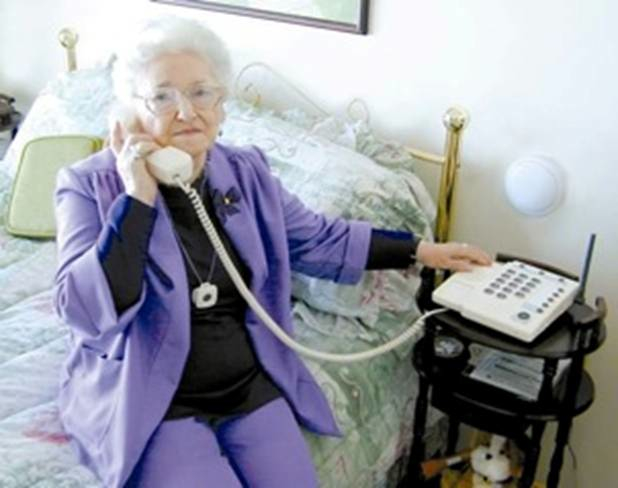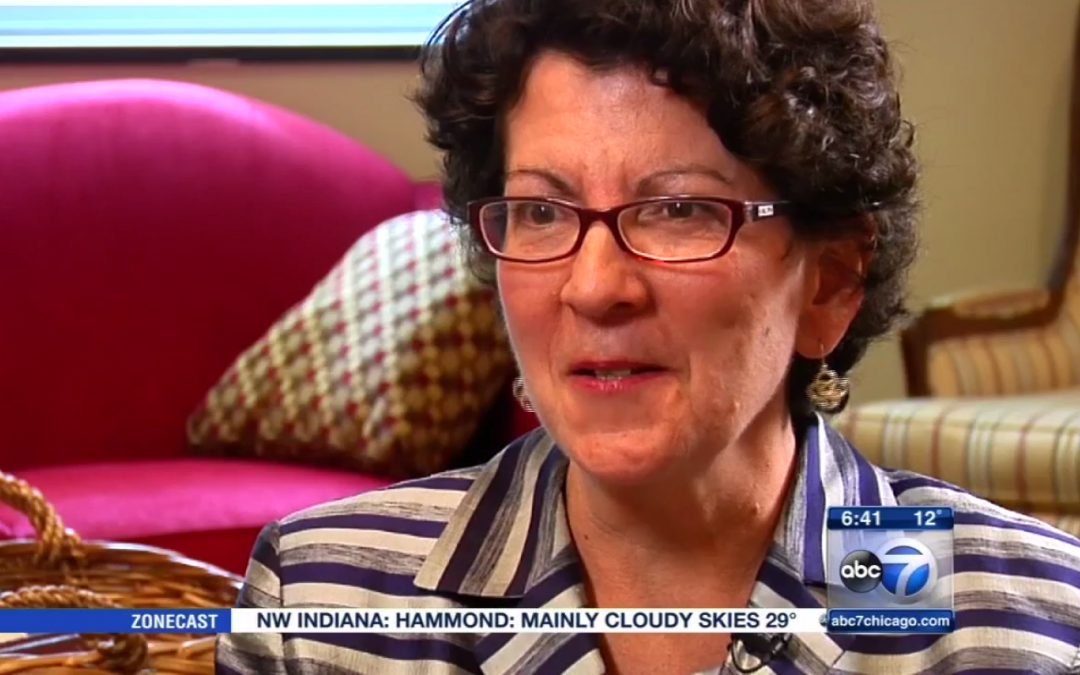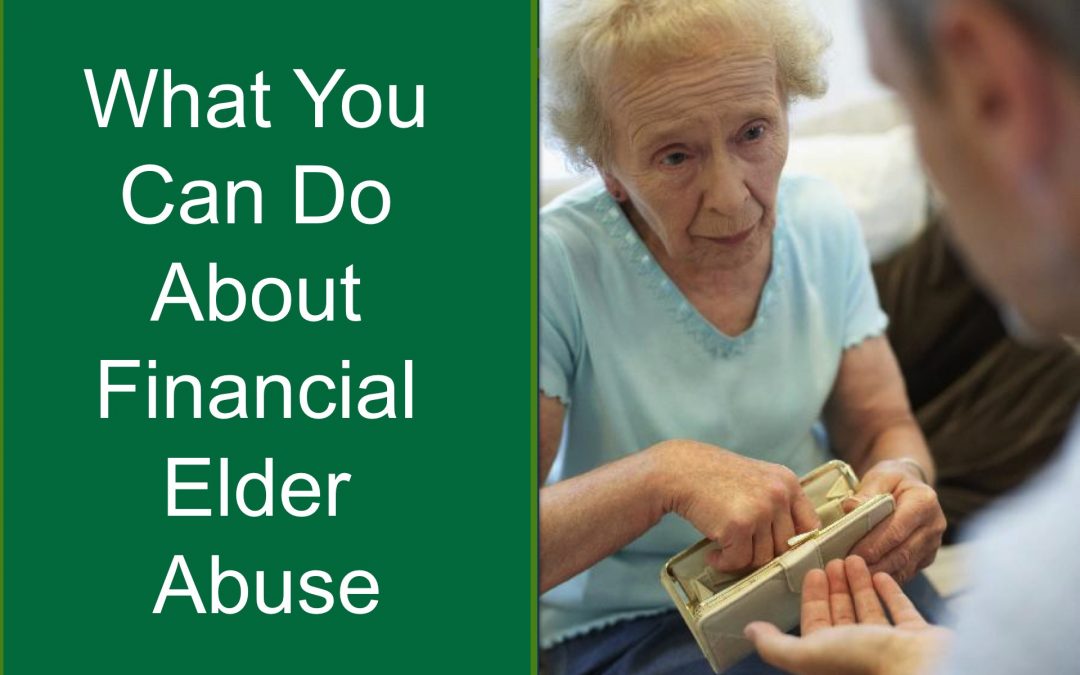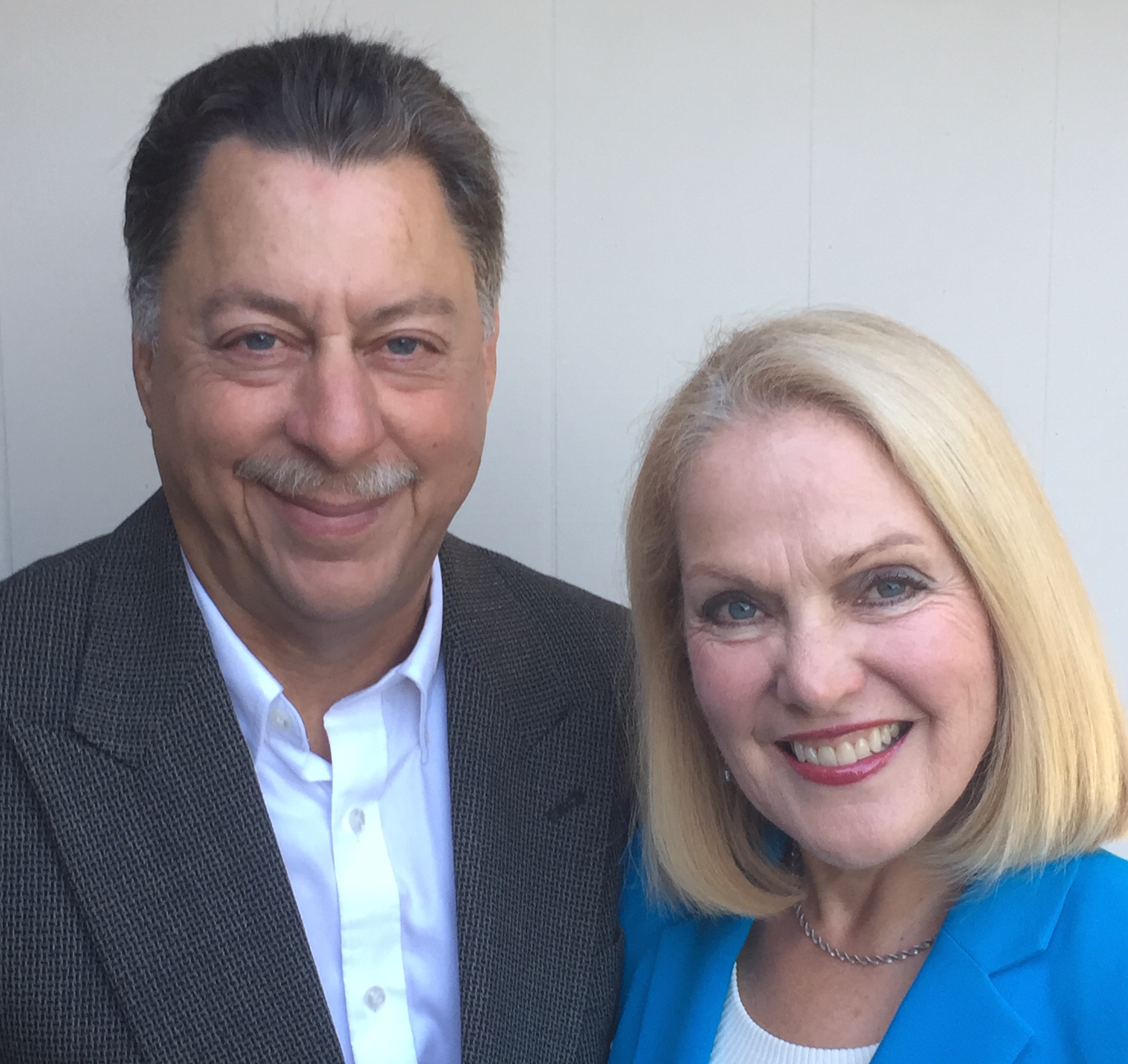
Sep 5, 2019 | aging, aging investor, cost of aging, declining health, diminished cognition, elder investor, elderly, finances for elders, financial advisors, financial capacity, financial elder abuse, financial judgement, handling money for seniors, investor
Attempts to scam money from seniors never stop. And the thieves keep getting better at thinking up ways to extract information from older folks. Here’s another one—a different phony Medicare trick.
People hear ads on TV about genetic testing and how it can predict disease and protect them. They also hear ads that they’re not getting all the Medicare benefits they deserve. Who doesn’t want to get all the benefits they should get? It’s a perfect moment for scammers.
They may call your retirement-aged client and tell them that new genetic testing is available that Medicare will pay for, worth thousands of dollars. Of course, all your client has to do is to give them their Social Security number and the free testing kit, signup papers, or other inducement will be mailed to them immediately.
Let’s be clear: Medicare does not pay for genetic testing as a “new benefit”. If for any reason such testing were needed, a physician would order it and explain why it was needed. Such testing would not be ordered without any discussion with one’s MD.
Your client should never, ever give out a Social Security number or other personal information such as date of birth or address over the phone. Your client must never accept a genetic testing kit not ordered by one’s own doctor. If it is accepted and the cheek swab, DNA test or anything else is given to the sender, your client may be billed directly, potentially incurring a debt for thousands of dollars. It would be a sad day for your client to mail in a claim for reimbursement to Medicare for a fake benefit and realize that the claim is denied. They’re on the hook for the full price.
These kinds of scams are used to get information to commit identity theft and Medicare fraud. No matter how smart your client is, anyone can be caught off guard and tricked.
What Advisors Can Do
Here are some ways to let your client know you care about their financial safety.
- Prepare a friendly form letter to send to all clients over age 65 and inform them about this scam. Warn them not to fall for it.
- Keep abreast of all the latest scams in over 30 categories at the Federal Trade Commission, which explains what they are and how they work. Keep clients advised.
If identity theft has happened, direct your client to the Federal Trade Commission website for instruction on what to do.
Carolyn Rosenblatt, RN, Elder law attorney, AgingInvestor.com
About Carolyn Rosenblatt and Dr. Mikol Davis
Carolyn Rosenblatt and Dr. Mikol Davis are co-authors of The Family Guide to Aging Parents (www.agingparents.com) and Succeed With Senior Clients: A Financial Advisors Guide To Best Practices. Rosenblatt, a registered nurse and elder law attorney, has more than 45 years combined experience in her professions. She has been quoted in the New York Times, Wall Street Journal, Money magazine and many other publications. Davis, a clinical psychologist and gerontologist, has more than 44 years experience as a mental health provider. In addition to serving his patients, Davis creates online courses and products to assist professionals and the public with understanding aging issues. Rosenblatt and Davis have been married for 34 years.

May 9, 2019 | aging, aging investor, cost of aging, declining health, diminished cognition, elder investor, elderly, finances for elders, financial advisors, financial capacity, financial elder abuse, financial judgement, handling money for aging parents, handling money for seniors, resources for senior, resources for seniors, scammers, senior citizen investor, senior investor, seniors finances
The Senior Safe Act allows you to hold transactions when you suspect financial abuse of a client. The Act is designed, at least in theory, to allow time for the trusted contacts you have on file to take appropriate action. Many of those victimized by predators or manipulated by unscrupulous family have dementia and have lost their judgment about what makes sense financially. The Act urges you to get trusted contacts and provides that you are not breaking privacy rules to contact them in the reasonable belief that your client is being financially abused. The length of time you can hold a requested transaction can be as long as a month. This is where the Senior Safe Act has missed the mark.
Let’s look at the reality of impaired elders who are in charge of their wealth on the family trust. The trust is in order, and if the elder recognizes that he or she is experiencing decline in mental ability, that trustee may choose to resign. Simple. But that is not what happens in too many cases. For many persons who have cognitive decline and dementia, the elder does not recognize that he is impaired at all. “I feel fine!” he tells his worried family. When asked to resign as trustee, having total control over (theoretically) millions of dollars in a trust, the elder flatly and stubbornly refuses. Meanwhile, financial abuse by predatory people can continue unabated.
When an older person experiences cognitive decline, it typically has a very slow onset. Short-term memory loss does not raise enough red flags for those closest to the elder to take any action. “She’s just getting old” they say dismissively. But memory loss is often the first and earliest warning sign of Alzheimer’s disease, the most common form of dementia. The odds of having Alzheimer’s disease by age 85 are at least one in three. Think about your own older clients. Some live well beyond age 85. The risk of dementia rises with age. Short-term memory loss interfering with daily life is not a normal part of aging. Financial abuse and cognitive impairment often go together.
When financial abuse reaches a visible level, the advisor may do what the law allows and call the trusted contact person, usually an adult child. The advisor hopes that the call will somehow trigger something and the abuse will be stopped. But here is a reality check: The family can’t accomplish anything needed in two weeks or even a month if you hold transactions then. Here is a real case example of just such a situation, showing how long it really did take.
In our work with a family at AgingParents.com we saw rampant financial abuse of an elder by a family member. The elder had dementia but had not been formally diagnosed by his doctor. Over 70% of his income was going to the predator. He was asked to resign as trustee by his two adult children, who were reasonably worried that he was going to give away all his cash and further encumber his home. The dad, whom we’ll call Gene, had been developing dementia for at least two years. He felt obligated to the predator and was totally powerless in resisting her demands for money. He just kept writing checks, draining his own resources. It was clearly a case of financial manipulation.
We were involved in working to persuade Gene to allow what his family trust provided: to have his daughter, Jennie, become the successor trustee. He agreed, then reneged. He accepted the logic and then refused to accept it. The kids had no choice but to use the law to take over control. Their father was too stubborn to resign as trustee when asked, even with the entire family presenting a united front, asking and respectfully begging.
The trust, like many such documents provided that Gene could be removed as trustee by his appointed successor, his daughter, after two physicians had declared him to be incapacitated for handling his own finances. A court decision was not required. However, getting him to two doctors willing to assess him and put their observations in writing was a challenge that took months to accomplish. The total time spent getting the change of trustees accomplished according to the terms of Gene’s trust was eight months.
His children were the trusted contacts in the advisor’s file. They knew about the abuse and were in agreement with the advisor that Gene had to stop being the trustee. The adult children had to hire consultants (AgingParents.com), have meetings, hire an attorney, and try various methods to get the job done. Their time energy and thousands of dollars were expended to prevent an even worse outcome, which was being left to support their aging father if he were to totally deplete his own funds.
The takeaways:
- Though well intended, we do not expect that the Senior Safe Act will do much to stop financial abuse because of the short time allowed for a financial professional to hold transactions. In Gene’s case, the predator would have been happy to wait a mere two weeks or a month before resuming the financial manipulation of Gene.
- Know that any older impaired client may not understand that he or she is cognitively impaired and will ignore pleas to resign as trustee with total control over any family trust.
- If you see that an older client is showing signs of cognitive decline, do not wait until it gets worse. Reach out at the time of your first suspicions of trouble. The family or other trusted persons may well have a better opportunity to persuade an elder to transfer power over finances to the appointed successor before complete loss of capacity. Expect this to take time.
In the case described above as a result of ongoing financial abuse, nearly all of Gene’s cash was depleted during the eight months of effort on the part of his adult children to have him removed. The advisor did the right thing but too much of Gene’s cash was depleted in the period when the abuser could keep manipulating him for those months of effort by family to have him removed as trustee.
By Carolyn L. Rosenblatt, RN, Elder law attorney, AgingInvestor.com
If you are seeing abuse and feel lost about how to stop it, contact us at AgingInvestor.com for a confidential consultation with our nurse-lawyer, geriatric psychologist team so you can do everything possible to protect your vulnerable client.

Apr 10, 2019 | aging, finances for elders, financial advisors, financial capacity, financial elder abuse, financial judgement, handling money for seniors, investment news, scammers, senior citizen investor, senior investor, seniors finances
Warn Your Aging Clients About A New Telephone Scam–Fake “Social Security” Calls
Carolyn L. Rosenblatt, RN, Elder law attorney, AgingInvestor.com
Scammers targeting your aging clients are getting smarter about how to fool them. Thieves can use spoofing computer software to trick the recipient of a call by showing a “real” number on caller ID. Pretend caller ID isn’t new but using it to target seniors on Social Security is a cruel tactic used to intimidate seniors. Here’s how it works. The evil caller has your older client’s telephone number and knows him to be at least of Social Security age. When the call comes in, it shows on the ID that yes, it’s Social Security. The caller immediately tells the elder in an authoritative voice that her Social Security number has been blocked. Of course this draws the expected reaction from most people–fear. They are not going to question what it means to have the SS number “blocked” or if that is even possible. (It isn’t.)
The caller says it is urgent and that in order to “reactivate” the SS number, the elder must act immediately, or their Social Security benefits will be affected. As your senior clients had paid into Social Security since its inception they don’t want to lose it. The scammer convincingly fakes concern and wants to “help”. All your aging client has to do is pay a fee and the number will be unblocked, they’re told. Many elders have heard of identity theft and believe that this person is going to help them prevent unauthorized use of their SS number, because that is what they hear on the call. Of course the caller then needs to “verify” the number and your client complies and recites the number. Instantly the number can be put into use any number of ways identify thieves have devised. And worse yet the elder pays them the “fee”.
Even if you believe with all your heart that YOUR aging loved is not dumb one and won’t fall for any of this, do not be so sure. Anyone can be caught off guard. Scammers are very clever at using fear and other strong emotions to manipulate unsuspecting aging parents to give up information without thinking about whether the request for it makes sense. You want to warn them. You want to remind them that they are never to give out any personal information like a SS number to a person they did not call themselves. Everyone’s Social Security numbers are potentially floating around in cyberspace enough as it is, without handing them to a telephone stranger who is lying to get them to pay money. You can warn your aging parents that the Social Security Administration will never ever call and ask anyone to verify the SS number. You can remind them that even if the caller ID shows something that looks real, it can be fake because spoofing software can show anything the scammers want it to show.
Millions of elders are approached regularly by this telephone scam and many others. My own mother in law, now passed, was very smart at fending off such phony calls and smelling a scam. But by age 95, that scam sensor she used to have seemed to fade. One day a man called her landline and said he was from Medicare. He just wanted to “confirm her Medicare number”. She had an active Medicare claim going on at the time, and we were helping her address the details. Because she had that claim, she fell for the trick. She gave the caller her full name, address, date of birth, mother’s maiden name, and her Social Security number. Fortunately we found out within a day and were able to jump into action to change all her accounts and credit cards. It took four months to straighten out the mess. The scammers got nothing. We got a lot of work, and had to take her to her banks and financial institutions in person to change everything. She felt bad because she was supposed to know better. Yes, but she forgot. We were lucky to find out before anything worse happened.
The takeaway here is that financial advisors are in a unique position of trust with your clients and they are likely to read a friendly letter from you, just giving them a heads-up about the latest scam. We urge you to create an old fashioned series of letters warning them about scams, about things happening in your industry that affect them, such as the Senior Safe Act and just staying in contact. When they hear from you in a friendly way, it reminds them of why they like and trust you. You’re more likely to retain them that way.
No time to write? Let us help at Aging Investor.com. We have free, pre-made client education material created just for seniors. You can simply download and send them out at intervals to all your retirement-aged clients. To access these items, ebooks and checklist, go to the Books and EBooks menu on our home page and find Resources for Clients. It can only make you look good to your investors!
|
|
Dr. Mikol Davis and Carolyn Rosenblatt, co-founders of AgingInvestor.com
Carolyn Rosenblatt, RN, Elder Law Attorney offers a wealth of experience with aging to help you create tools so you can skillfully manage your aging clients. You will understand your rights and theirs so you can stay safe and keep them safe too.
Dr. Mikol Davis, Psychologist, Gerontologist offers in depth of knowledge about diminished financial capacity in older adults to help you strategize best practices so you can protect your vulnerable aging clients.
They are the authors of "Succeed With Senior Clients: A Financial Advisors Guide To Best Practice," and "Hidden Truths About Retirement And Long Term Care," available at AgingInvestor.com offers accredited cutting edge on-line continuing education courses for financial professionals wanting to expand their expertise in best practices for their aging clients. To learn more about our courses click HERE
|

Jan 28, 2019 | aging, aging in place, aging investor, cost of aging, cost of long term care, custodial care, declining health, diminished cognition, elder investor, elderly, finances for elders, financial advisors, financial capacity, financial elder abuse, financial judgement, handling money for seniors, health, long term care, nursing home, resources for seniors, seniors finances
Your clients are getting ready for retirement. You’ve done the calculations, balanced the portfolio and advised them of what income to expect. You’ve discussed how much spending is ok. You used your program and your analysis was thorough. You’ve done your job, right?
Not exactly. There is probably no algorithm nor program that will calculate your client’s individual profile of health risks that will likely lead to the expense of long term care. That can be a whopper. Maybe you’ve suggested long term care insurance. Most people don’t choose to buy it. For those who do, the benefits are limited and the “elimination period” (deductible) is thousands of dollars. There go your careful calculations. At least 90% of folks don’t have that coverage. Now what?
But how can you predict what’s going to happen to anyone’s health in retirement, you ask. You can’t be precise, but you surely can make some rational observations and give advice accordingly. Those observations consist of two parts: what you can see with your own eyes and what you can glean by asking a few basic questions. If you think asking any client about their health conditions is too nosy or not your job, consider that if the client needs long term care and runs out of money because of it, they’re not going to think much of you. And the cost can wipe out their security.
Asking about health issues is not nosy at all. Rather, it’s what any smart advisor planning for longevity must do. Let’s not keep pretending that everyone stays the same physically and mentally from the start of retirement to end of life. Our bodies go through wear and tear and things break down. Cognitive decline affects at least a third of people who reach the age of 85. The risk of Alzheimer’s disease keeps climbing after that. Now, what was that life expectancy you were using in your calculation? Was it age 99?
Let’s start with what you can see in your client with your own eyes. (If they’re not in front of you, perhaps Skype is an option). Is your client obese, as about 40% of the U.S. population is? This leads to heart disease, stroke, and diabetes, among other diseases and conditions. The medical care people receive in many cases will save them from dying but they then live with disabilities. And yes, they will be very likely to need expensive long term care. Neither health insurance nor Medicare will cover long term care. Such help as a part time caregiver at home is how most folks start out with long term care. Your client pays out of pocket most of the time. Did you calculate how much it costs as well as how long they will likely need it? If they have multiple medical conditions, and have started long term care, they’ll probably continue to need some form of it for all their remaining years.
Find out what you may not know from simply observing your client’s appearance by asking questions. You can make your own list or get a health care provider to help you with a few targeted questions. You will need to educate your client as to the reason why you need this information. It’s to help them plan for how much to save in their retirement years.
Here are some examples of basic questions that can help you predict the need for possible long term care:
- How’s your health these days? Has a doctor told you that you have any long term conditions?
- Are you taking medications? What are they for?
- Do you smoke?
- Are you concerned at all about any health issues you have at this time?
Do you recall your parents’ ages when they died?Your aging clients will not be eager to talk about the potential need for long term care. When you told them about what to expect for “out of pocket medical costs in retirement”, you did not give them a figure that included long term care. Long term care is not “medical” according to Medicare. Rather, it is called “custodial care”. The client probably will not bring it up, so you must do this.
When you have done your observations and gotten answers to your health-risk related questions at least there is a place to start a meaningful conversation. You can give them figures as to the cost of typical kinds of care, such as a non-medical home care worker. We at AgingInvestor.com recommend starting your projections at age 80 as to when a person might need physical help. Many of us know someone who did require help with at least some part of his or her life at that age. Then you can talk about how any condition your client identifies for you, such as high blood pressure, diabetes, etc. as shortening normal life expectancy and increasing the risk for needing help. If your client already has difficulty with some normal daily activity such as walking or bathing, they are definitely at high risk for needing paid help sooner than a person without these problems.
Clients may be completely unaware of such things as the hourly cost of a home care worker, what assisted living costs each month and what home modifications cost if they are able to remain in their own home. You can find a thorough discussion of these and many other parts of long term care in our book, Hidden Truths About Retirement & Long Term Care, written specifically for financial advisors like you.
Every conscientious advisor needs to wake up to the reality that your retirement income calculator omits the reality check of health problems. We’re not talking about nursing homes, but every other kind of care and help most people will need as they age. If you do want to help clients who are reaching retirement age to plan realistically, include the health risks you can see or learn about by asking.
By Carolyn L. Rosenblatt, RN, Elder law attorney, AgingInvestor.com

Jan 27, 2019 | aging, aging investor, financial advisors, financial capacity, financial elder abuse, financial judgement, handling money for aging parents, handling money for seniors, seniors finances
Scams, theft and fraud with seniors’ money is a growing problem. Now the Wall Street Journal reports that banks in our country calculated a 12% increase in financial elder abuse just in the last year. Why do the thieves pick on grandma or grandpa so much? It looks so ugly to take advantage of an elder.
Your aging clients, whether getting advice or investing in your institution, are targets without a doubt. They hold a disproportionate amount of our country’s wealth. And you can help stop them from being victimized. Over $36B a year is stolen from elders in the U.S. alone.
Your aging parents are easy targets for scammerThe Ss for lots of reasons. Elders in this country hold a disproportionately high level of wealth compared to younger people. Some have accumulated significant assets and they may not see themselves as vulnerable at all. Clearly, diminishing cognition makes it easy for thieves and manipulators. Cognitive decline affects at least a third of people over age 85. Your aging client may not have the awareness any longer to spot a fishy-sounding line from anyone. Widowed clients live alone and are isolated, ready to engage with that friendly sounding, cheerful voice from the clever scammer on the phone.
Thieves stay in contact and weave a trap over time. Many aging folks are dependent on others for care, for help at home and for social contact. Dependency makes them vulnerable. Unscrupulous family members lead the pack of those who seize on that vulnerability and trust to rip off their elders. It’s all too easy to influence an aging person to give a “loan”, access to an account, or power of attorney to a person with ulterior motives, which essentially creates a license to steal. Eventually they all want your elderly client to give them money. That’s where your awareness can thwart them.
Banks are making efforts step up their reporting of suspected elder abuse, but that is not enough to thwart the crime. The Senior Safe Act gives you, the financial professional protection if you report suspected financial abuse. Great. But how about stepping up your contact and review of transactions with any elderly client before abuse happens? Too often, the customer-facing bank employee does not see anything wrong until far too much money has been drained from the elder’s account. After the abuse has occurred, it is too late to get the money back. And there is hesitation at the banks, even when they are warned. To put bluntly, banks can add to the problem.
One example of this involved a client of ours at AgingParents.com where we consult with families and elders. She was the daughter of an 87 year old dad who had some memory problems and was frail, losing independence. Her father was a wealthy man, in a long-term relationship with a younger woman. She had manipulated him into giving her access to his family’s trust account into which his significant income was deposited each month.
The man’s daughter found out after a suspicious withdrawal from the account and she contacted the bank immediately. She traveled to her father’s state, went to the bank in person and showed them the trust, which did not have the girlfriend’s name on it anywhere. She asked them to stop the access by the girlfriend. The bank complied and put the funds into an account to which the girlfriend did not have access. After the man’s daughter left the state, the girlfriend took the elder back to the bank and told him to say that he wanted her on the account. Presto! The bank complied and the girlfriend then had access once again, only one day later. The bank aided the girlfriend in financial abuse of their own elderly customer, despite a specific request to stop it and evidence of manipulation. The matter ended up in litigation. We can only say “how ridiculous!” The financial professional, bank employee or manager should have known better. The picture was classic: warning had been given, paperwork proving the problem was given to the bank, and the bank agreed to take the pushy girlfriend off the account. Then they turned around the next day and did the opposite, just because the elderly customer was standing there. Never mind that he was manipulated into saying what the woman told him to say, prodding him as he stood there. That kind of scenario is what needs to change.
If you are now supposed to report abuse, you definitely need to know what the red flags of diminished capacity look like and how to see the warning signs of financial abuse. At AgingInvestor.com, we offer accredited courses to train financial service employees, compliance officers and managers in how to spot warning signs of cognitive decline and financial elder abuse.
Get your free checklist of the red flags of diminished capacity here.
Here are some takeaways:
1.The Senior Safe Act gives you some immunity if you report abuse. It offers you no guidance in how to spot elder financial abuse.
2. Aging clients with diminished capacity are, of course, much more vulnerable to manipulation by an unscrupulous romantic “friend”, family member or stranger on the phone or internet. They need your protection.
3. Odds are that by the time you report suspected abuse, the money is already gone and authorities cannot get it back. It makes more sense to be proactive in protecting aging clients rather than merely reporting abuse. Learn about how to do that by training.
By Carolyn Rosenblatt, RN, Elder law attorney, AgingInvestor.com

Apr 18, 2018 | aging, aging investor, diminished cognition, elder investor, elderly, finances for elders, financial advisors, financial capacity, financial elder abuse, financial judgement, handling money for aging parents, handling money for seniors, seniors finances
It seems that regulators are fond of creating new mandates for you without telling you how to implement them and what risks might be involved. The new FINRA rule that says you must “try” to get a trusted contact person (TCP) for new clients is illustrative.
First of all there is no firm requirement that you actually get a TCP for anyone. All you have to do is make an attempt. If the client says “no”, you’re out of luck in trying to solve any problem that may exist without anyone to call in the event of an issue you see. Such issues might include someone ripping off your client or your client really losing his marbles. The intent of the rule was good. The idea was to increase protections for vulnerable elders. It’s just that the way clients act and the issues you are sure to see with one TCP have been ignored in regulators’ creation of this mandate.
Research has given us important information about protecting elders from financial abuse. We know that family members are the most frequent abusers of elders. Guess who most elders would think of as a TCP? The family member, of course. The idea of a single TCP is flawed from the outset. If the idea is to keep your client financially safer, you don’t want to be limited to the potential abuser as the TCP. That defeats the purpose.
Here at AgingInvestor.com we are on a mission to keep elders safer. We make every effort to fill in the blank places your regulators leave when they come up with a mandate like getting a TCP for your clients. Here are our recommendations on this subject and why we say what we say about TCPs.
First, we believe every advisor should not only “try” to get a TCP for every client–we think you should insist on it as a matter of your intelligent, proactive senior office policy. Every client, new and existing should be approached with a courteous, respectful explanation and request to name a TCP you can contact in case of need. You let clients know that you have a policy to protect them from potential predators who are out there trolling for your clients, particularly the seniors. You could write this explanation and request up and send it around or bring it up at every portfolio review.
Next, we recommend that you get not just one TCP for every client, but three. The reason for this is that since family members are often the abusers of vulnerable people, you need someone else to call if “sonny boy” is ripping off dad’s account and dad is too impaired to realize it. “Sonny boy” just might be the one TCP his dad, your client named and you would then be stuck with no way to protect your client in that situation. Someone outside the family would be ideal. This could be the estate attorney, a competent friend, or a clergy person your client trusts. Any of them would need to be able to intervene when learning of suspected financial abuse of your client. A third TCP could be another family member your client also sees as trustworthy. With information going from the advisor to three people at once, the risk of abuse is lessened and the chances of effective action in the event of abuse are increased.
Finally, we recommend that you consider all the risks involved in a decision to reach out to the TCP when you see red flags of diminished capacity in your client, or when you see warning signs of financial abuse of your client. You do need a written internal office policy that directs you as to the observations, documentation and steps to take when an issue comes to your attention. Legally, you are probably on firm ground, carrying out the intent of the FINRA regulation. However, you don’t want to set your client up for harm.
For instance, if the client is in the middle of a contentious divorce and the ex- spouse is the TCP, do you want to release information about your client’s finances that could harm your client in the divorce proceeding? Give yourself time to discuss the options with other, knowledgeable people in your office, or group. The value of having a proactive office policy for aging clients in this situation is that you have others to ask and weigh in with their points of view.
If you are not sure about the red flags of diminished capacity and what you should look for, get your free downloadable checklist here. Likewise if you are not clear about classic warning signs of financial abuse get your free checklist for those here too.
Need help with that smart, proactive senior office policy? Ask for a consultation at AgingInvestor.com and get the guidance you need from our nurse-lawyer, geriatric psychologist team
Carolyn Rosenblatt, RN, Elder law attorney, AgingInvestor.com
<p><code> </code></p><div class="signature"><table style="border: 2px solid #999; border-style: solid; background-color: #f5fff5;"><tbody><tr><td style="width: 110px; vertical-align: text-top; align-content: center;"><div style="border: 1px solid #eee;"><img class="alignleft" src="http://www.aginginvestor.com/wp-content/uploads/2015/04/DavisRosenblattPublicityPhoto.jpg" alt="" width="123" height="116"></div></td><td><h4>Dr. Mikol Davis and Carolyn Rosenblatt, co-founders of AgingInvestor.com</h4><p>Carolyn Rosenblatt, RN, Elder Law Attorney offers a wealth of experience with aging to help you create tools so you can skillfully manage your aging clients. You will understand your rights and theirs so you can stay safe and keep them safe too.</p><p>Dr. Mikol Davis, Psychologist, Gerontologist offers depth of knowledge about diminished financial capacity in older adults to help you strategize best practices so you can protect your vulnerable aging clients.</p><p><a href="http://www.aginginvestor.com" target="_blank" rel="noopener">AgingInvestors.com</a> offers accredited cutting edge on-line continuing education courses for financial professionals wanting to expand their expertise in best practices for their aging clients. To learn more about our courses click <a href="https://agingparents.leadpages.co/ceu-choices/" target="_blank" rel="noopener">HERE</a></p></td></tr></tbody></table></div>

Feb 13, 2018 | aging, aging investor, cost of aging, elder investor, finances for elders, financial advisors, financial capacity, financial elder abuse, financial judgement, finra, handling money for aging parents, handling money for seniors, investor, power of attorney, senior investor, seniors finances
The regulators are trying. They want to help advisors protect aging clients from financial abuse. They don’t want you to fear doing something wrong if you refrain from handing over assets to what looks like an abuser. But not living in the real world of how to stop abuse by determined abusers has its disadvantages. The new rule tells you who is at risk (elders and other impaired adults). It tells you that you just need a reasonable suspicion of abuse, not unquestioned evidence. It tells you what a temporary hold is and how long it can be: 15 days, 25 at max. Sounds ok. Until you actually know how long it takes for the legal steps to halt abuse.
Here at AgingInvestor.com we see this problem in the world of families and those who want to rip them off, not from inside an institutional setting or financial services firm. The world from here looks different from what FINRA imagines. There is usually no way anyone can stop abuse in 15 days or even in 25. We explain. In a real case, the kind this rule is designed to affect, we worked with family in an unfortunately typical situation of an unscrupulous son trying to squeeze money out of his 90 year old father who had dementia. The advisor had seen the pattern. He knew the son never did well on his own and he had been given handouts from dad for years. Dad, whom we’ll call Joe, lived in a nursing home. He needed help with everything and his memory was shot. He was easily confused. Yet his advisor never questioned his ability to effect financial transactions. But when the son, we’ll call Jake, brought his frail father into the advisor’s office demanding $50,000 plus access to the cash management account, the advisor was sure it was abuse. He knew his client was too confused to disagree with Jake. The advisor dragged his feet and didn’t provide the check his client had asked for, pushed by Jake, Over a month later, he felt obligated to give his client the $50K, which of course Jake got right away from Joe. The advisor didn’t have Rule 2165 but he knew that Joe’s daughter Rhoda was the appointed person as power of attorney and successor trustee. He didn’t have permission to contact her, so he did it, as he said “on the QT”. Rhoda was upset. She called us for advice. She found us through her own advisor who had the sense to send her to a resource who could answer her questions and guide her.
First we looked at the trust and what it said about Joe being removed as trustee or resigning as such. Two doctor’s letters were needed, verifying that he was no longer competent to manage finances if he was to be removed as trustee. We advised her to get those letters asap. Rhoda lived out of state from Joe. She found the doctors and flew into town to take him to the appointments. Fortunately the doctors were able to say that Joe had indeed lost his capacity for handling his money. A couple of weeks after the appointments, Rhoda got the letters she needed. She then had to take them to Joe’s estate planning attorney, who met with her and eventually gave her a Certificate of Trust, showing that she was now the successor to Joe and was in charge of his money. She then had to get the Certificate to his advisor’s firm, which had to review it and after two weeks, they accepted it. Only then was Rhoda able to stop any further disbursements from Joe’s account without her permission. Her brother was furious. His gravy train had stopped. The advisor had sent a debit card for the cash management account Joe requested under pressure to Rhoda, not to Joe. Rhoda destroyed it. Abuse stopped in its tracks.
Reality check: this scenario of stopping abuse involved a lawyer, an elder willing to go to two doctors, the cooperation of two doctors, travel between states, the approval of the Certificate of Trust with Rhoda’s name on it through a process by the advisor’s firm and a lot of time spent by Rhoda. The entire matter of protecting Joe from abuse took three months. Rule 2165 supposedly authorizes advisors to “take immediate action” when abuse is reasonably suspected. What is myth rather than reality is how long it takes to actually protect the elder and stop a predator. This was a case of undue influence by Jake who had a history of manipulating his father. And the new rule would not have helped at all. Jake would have happily waited for a mere 15 days to get his hands on the cash. Rhoda couldn’t possibly get Joe removed as his own trustee without the doctors’ letters. This sort of prerequisite of needing doctors to verify incapacity is commonly required in typical trusts. Perhaps the drafters of Rule 2165 never had to go through the process described here in their own lives. If they had, the new rule would provide for a 90 day authorization to hold transactions, rather than a maximum of 25 days. Maybe going forward when the myth gives way to reality, the rule will be revised. For now it is inadequate.
|
|
Dr. Mikol Davis and Carolyn Rosenblatt, co-founders of AgingInvestor.com
Carolyn Rosenblatt, RN, Elder Law Attorney offers a wealth of experience with aging to help you create tools so you can skillfully manage your aging clients. You will understand your rights and theirs so you can stay safe and keep them safe too.
Dr. Mikol Davis, Psychologist, Gerontologist offers in depth of knowledge about diminished financial capacity in older adults to help you strategize best practices so you can protect your vulnerable aging clients.
They are the authors of "Succeed With Senior Clients: A Financial Advisors Guide To Best Practice," and "Hidden Truths About Retirement And Long Term Care," available at AgingInvestor.com offers accredited cutting edge on-line continuing education courses for financial professionals wanting to expand their expertise in best practices for their aging clients. To learn more about our courses click HERE
|

Feb 2, 2018 | aging, aging investor, declining health, diminished cognition, elder investor, elderly, finances for elders, financial advisors, financial capacity, financial elder abuse, financial judgement, scammers, seniors finances
You may have heard of the fake calls from thieves pretending to be from the IRS. It can be a threatening robocall. Or it can be a male with an aggressive manner telling the recipient of the call that they will be arrested for owing back taxes if they don’t pay immediately. These criminals carefully select older people and anyone they consider vulnerable to their fake pressure. Your aging clients could be a target and scammers want to terrify them.
How do they get the names of our aging parents? They buy them. Information is for sale, from lottery entry forms, contests, magazine subscriptions and from hacking whatever can be hacked. Identity information can even be purchased on the black market. “Information brokers” have been around for decades and so have these telephone scams. Supposedly, the entities that sell the names don’t care what the buyer does with them. There are likely millions of names and telephone numbers available to the scammers, given the nationwide nature of their ripoff efforts. Apparently, names and numbers are very easy for them to get.
Here’s how it works: The caller catches the unsuspecting older person off guard. The call is official sounding: “This is Officer James with the Internal Revenue Service and I am calling about an urgent matter! Do not hang up!” Sometimes they are even able to secure a fake caller ID that says “IRS” or looks like a legitimate government entity to those with caller ID. There were also reported cases when they used the name and email address of a CFPB employee.
They then tell the stunned elder that they or their spouse has an overdue debt to the IRS and if it is not paid immediately they will be arrested. Of course, they want the elder to use a wire transfer or a prepaid debit card so the thief can’t be traced. The frightened person will hurriedly comply and realize only later that it was a scam. In the moment of reacting to the threat, they are not thinking clearly. They are moved by fear–just what the thief was hoping for.
No matter how many public service announcements are sent out, and no matter how many Federal Trade Commission, AARP or National Center on Elder Abuse warnings are posted, the scam is still working. We at AgingParents.com think the best way to keep our aging loved ones financially safer is to personally warn them yourself about these scams. They will probably listen to family more readily than they would seek information from the internet or official sources trying to spread the word. Of course, the IRS will never, under any circumstances call someone and demand payment of a debt. Their official communications about taxes are by snail mail.
If these evil scammers were not successful, they would stop doing this. But sadly, it works and they are relentless. My neighbors, many elders, have reported that they have gotten these calls this week. Beware. Please take the time to alert your loved ones to this problem. And don’t think your mentally alert aging loved one is too smart to fall for this. No one is immune from being shocked and intimidated by a sudden call. It can happen to anyone.
We at AgingInvestor.com think the best way to keep your older clients financially safer is to personally warn them yourself about these scams. They will probably listen to family more readily than they would seek information from the internet or official sources trying to spread the word. Of course, the IRS would never, under any circumstances call someone and demand payment of a debt. Their official communications about taxes are by snail mail and that is not likely to change anytime soon.
If these evil scammers were not successful, they would stop doing this. But sadly, it works and they are relentless. My own neighbors, many elders, have reported that they have gotten these calls this week. Beware. Please take the time to alert your clients to this problem. And don’t think your ever so sharp client is too smart to fall for this. No one is immune from being shocked and intimidated by a sudden call. It can happen to anyone.
If you want to send a friendly letter to your clients about this scam and don’t have time to put it together, we make it easy for you. Just go to this link and download a free pre-made letter to send out.
 Revise it with your name or firm name and you’ll look good by showing that you do care about their financial safety. You’ll never regret doing your part to thwart thieves and prevent financial elder abuse.
Revise it with your name or firm name and you’ll look good by showing that you do care about their financial safety. You’ll never regret doing your part to thwart thieves and prevent financial elder abuse.
|
|
Dr. Mikol Davis and Carolyn Rosenblatt, co-founders of AgingInvestor.com
Carolyn Rosenblatt, RN, Elder Law Attorney offers a wealth of experience with aging to help you create tools so you can skillfully manage your aging clients. You will understand your rights and theirs so you can stay safe and keep them safe too.
Dr. Mikol Davis, Psychologist, Gerontologist offers in depth of knowledge about diminished financial capacity in older adults to help you strategize best practices so you can protect your vulnerable aging clients.
They are the authors of "Succeed With Senior Clients: A Financial Advisors Guide To Best Practice," and "Hidden Truths About Retirement And Long Term Care," available at AgingInvestor.com offers accredited cutting edge on-line continuing education courses for financial professionals wanting to expand their expertise in best practices for their aging clients. To learn more about our courses click HERE
|

Jun 15, 2017 | aging, aging investor, elder investor, elderly, finances for elders, financial elder abuse, senior investor, seniors finances
|
|
Dr. Mikol Davis and Carolyn Rosenblatt, co-founders of AgingInvestor.com
Carolyn Rosenblatt, RN, Elder Law Attorney offers a wealth of experience with aging to help you create tools so you can skillfully manage your aging clients. You will understand your rights and theirs so you can stay safe and keep them safe too.
Dr. Mikol Davis, Psychologist, Gerontologist offers in depth of knowledge about diminished financial capacity in older adults to help you strategize best practices so you can protect your vulnerable aging clients.
They are the authors of "Succeed With Senior Clients: A Financial Advisors Guide To Best Practice," and "Hidden Truths About Retirement And Long Term Care," available at AgingInvestor.com offers accredited cutting edge on-line continuing education courses for financial professionals wanting to expand their expertise in best practices for their aging clients. To learn more about our courses click HERE
|

May 8, 2017 | aging, aging investor, declining health, elder investor, elderly, finances for elders, financial advisors, financial capacity, financial elder abuse, financial judgement, handling money for aging parents, senior citizen investor, senior investor, seniors finances
Your older investors are sure it will never happen to them but Medicare fraud can trick anyone. Even those without a hint of cognitive decline can get taken by scammers. At AgingInvestor.com, we educate advisors about protecting clients from elder financial abuse and we thought we had our own family covered. With a 94 year old mother, we are especially alert. We were stunned when mom told us that someone “from Medicare” had called and asked her to “verify” her personal information.
Alice is a sharp 94 year old, living mostly independently in a seniors’ complex. She’s active, does her own shopping and is engaged with her neighbors in the community. She had an issue with Medicare not paying a bill for a service she had received some months prior. With our help, she had undertaken an appeal process, which involves a lot of repetitive paperwork. When a man saying he was from Medicare called, she thought it was about the appeal. Of course it wasn’t. The scammer asked her to “verify” her Social Security number, her address, date of birth and mother’s maiden name and she gave him that information.
A few hours later, she mentioned what had happened and said she had been wondering if it was right to give out that information. We were shocked! How is it that she didn’t see the potential ID thief when we talk about this all the time? We knew we had to jump on this right away to stop the thieves from using the information to open new accounts in her name. Hours were spent the next day calling the two banks where she had accounts, her credit card company, the credit reporting agencies and Social Security. We had to stop the auto debits on her bill payments. We cleaned up the mess.
So far so good. No unauthorized transactions have happened. Her old accounts were closed and new ones opened. Social Security sends her payments to the new account. Fraud alerts are on everything now. Whew! This was a lesson that even the alert older person can get fooled with the right pitch on the phone.
Here’s the takeaway.
Warn your clients: Medicare will NEVER call and ask you for your personal information. Never give it out unless you place a call to order something that you know is legitimate.
Medicare fraud can happen in many forms. This was just one of them. I believe that there was probably a connection between her Medicare appeal and the fraud attempt. It’s too much of a coincidence that they called when she had communication with Medicare going on already with her appeal. The appeal had not yet been resolved. This information got into the wrong hands, making it easy to trick a sharp person by saying he was calling from Medicare. Mom could be just like any one of your older clients.
Why is this important? You’re on the front lines and you have a trusting relationship with clients. Speak up and make basic efforts to educate them about these scams. A lot of money can be drained from an account instantly with all the client’s personal information out there. Make yourself look good. A word from you can remind your aging clients that you care about their financial safety and that you are looking out for them.
Learn more about protecting aging clients from financial abuse in Succeed With Senior Clients: A Financial Advisor’s Guide to Best Practices. Click here to purchase it now. You’ll build your knowledge about aging investors fast.
Carolyn Rosenblatt, RN, Elder Law Attorney, & Dr. Mikol Davis, Psychologist, Gerontologist, co-founders AgingInvestor.com
|
|
Dr. Mikol Davis and Carolyn Rosenblatt, co-founders of AgingInvestor.com
Carolyn Rosenblatt, RN, Elder Law Attorney offers a wealth of experience with aging to help you create tools so you can skillfully manage your aging clients. You will understand your rights and theirs so you can stay safe and keep them safe too.
Dr. Mikol Davis, Psychologist, Gerontologist offers in depth of knowledge about diminished financial capacity in older adults to help you strategize best practices so you can protect your vulnerable aging clients.
They are the authors of "Succeed With Senior Clients: A Financial Advisors Guide To Best Practice," and "Hidden Truths About Retirement And Long Term Care," available at AgingInvestor.com offers accredited cutting edge on-line continuing education courses for financial professionals wanting to expand their expertise in best practices for their aging clients. To learn more about our courses click HERE
|

Apr 24, 2017 | aging, aging investor, diminished cognition, elder investor, elderly, finances for elders, financial advisors, financial capacity, financial elder abuse, financial judgement, handling money for aging parents, handling money for seniors, investor, scammers, senior citizen investor, senior investor, seniors finances
What To Watch For: Aging Clients and The Sweetheart Scam
If it didn’t happen so often, there would be no need to warn your single, widowed clients about it. But every day, someone gets taken in by a “special someone” who appears to have only your client’s interests at heart. The special someone is a scam artist who knows just how to get an unsuspecting lonely man or woman into the web of deception. And then they finagle money out of your client and run.
Some of these scammers are skillful repeat offenders. Some just see an opportunity and proceed to milk it for all it’s worth. Take the case of Tommy, whose wife was ill with cancer. He used to take his clothes to the local dry cleaner every week and he got friendly with the woman who ran the business. She loved to chat and gossip and he was lonely with his caregiving, cooped up with the daily chores he had to do for his ailing wife. Norma, the dry cleaner heard all about it.
Just after his wife passed, Tommy got a visit from Norma. She was so consoling and comforting. He felt like he had a real friend. She had heard about his wife’s illness for over a year and was ever so sympathetic. She also knew he had money. Within a month she had moved in with Tommy.
Over the next six months of giving Tommy her undivided attention, she managed to persuade him to give her “loans” of over $300K. She promised to stay with him forever. He loved the flattery and feeling special. No sooner had Norma gotten the last of what she could easily take, she promptly sold the dry cleaning business and disappeared. This is not such an unusual story.
Here’s what every financial professional needs to know about the Sweetheart Scam. Professional predators comb the obituaries for stories about the beloved widow or widower left behind. They look for those who have been with a deceased who was a business leader, a banker, a financially successful person. They choose the ones who may be likely targets, the survivors who have means. They scope out how to meet them and seize the opportunity to take advantage of loneliness. They will stop at nothing to get in the door. And sooner or later they always need “a temporary loan” or a little help to get out of an unfortunate jam. If it works, they up the ante. This can go on until they have bankrupted a widow or widower. It will at least drain available cash if no one is watching.
That’s where you come in, the financial professional with the ability to notice when unusual withdrawals are coming out of your client’s account. Once the scammer has gotten control over your client’s emotions, it may be too late to stop the scam. Your client is “in love” or at least addicted to the showered on attention. She won’t believe your warning then. The heads-up must come early, before an opportunist has a chance to cast a spell.
Here’s the takeaway: any recently widowed client in your book is a potential target. Do these things:
- Gently raise the subject of being careful of any stranger he/she meets soon after the loss of a spouse. Warn with empathy and facts.
- If your client claims he’s met a “special someone” do some digging. Google the person he names. Ask a few probing questions. See what your client may not be able to see. Share the data you glean with your client.
- Be sure you have contact information for a family member or trusted friend of your client whom you can call if you see something suspicious. Call them if you think your client is in danger, particularly if your client doesn’t want to hear your warning.
That protective posture you take on can save your client from disaster.
Financial elder abuse takes many forms besides the Sweetheart Scam. It is called “the crime of the century”, it is so prevalent. With the right know-how, you can stop it and keep your clients safer. Take a deeper dive into this subject in a book written just for you, Succeed With Senior Clients: A Financial Advisor’s Guide to Best Practices. Get a look at it here.
Carolyn Rosenblatt, RN, Elder Law Attorney & Dr. Mikol Davis, Gerontologist
AgingInvestor.com and AgingParents.com
|
|
Dr. Mikol Davis and Carolyn Rosenblatt, co-founders of AgingInvestor.com
Carolyn Rosenblatt, RN, Elder Law Attorney offers a wealth of experience with aging to help you create tools so you can skillfully manage your aging clients. You will understand your rights and theirs so you can stay safe and keep them safe too.
Dr. Mikol Davis, Psychologist, Gerontologist offers in depth of knowledge about diminished financial capacity in older adults to help you strategize best practices so you can protect your vulnerable aging clients.
They are the authors of "Succeed With Senior Clients: A Financial Advisors Guide To Best Practice," and "Hidden Truths About Retirement And Long Term Care," available at AgingInvestor.com offers accredited cutting edge on-line continuing education courses for financial professionals wanting to expand their expertise in best practices for their aging clients. To learn more about our courses click HERE
|

Apr 11, 2017 | aging, aging investor, declining health, diminished cognition, elder investor, elderly, finances for elders, financial advisors, financial capacity, financial elder abuse, financial judgement, handling money for aging parents, handling money for seniors, senior citizen investor, senior investor, seniors finances
In a recent issue of Investment News, a study of financial advisors looked at this question. 591 advisors were asked about their experiences with elder financial abuse. One of the surprising findings focused on those advisors who knew or suspected abuse but did not report it.
A significant percentage of those who did not report abuse gave as a reason that they did not know who to contact. What is most troubling about this finding is that not knowing who to contact is such a simple problem to solve. Historically your regulators have never required that you have the name of a trusted contact for your client in order to open a file for that person. Here at AgingInvestor.com and AgingParents.com, where elder financial abuse comes up often, we think it is extremely short-sighted to be without a trusted contact or two in every client’s file. Isn’t it obvious that you need someone to call if a client gets into danger, whether it’s elder abuse or not? No one gets out of here alive and a client can live for quite a long time, developing cognitive impairment along the way. That puts a person at much higher risk for financial abuse.
New FINRA rules will require that you make “reasonable efforts” to get a trusted contact from your clients. We assure you, reasonable efforts are a lot easier to make when your client is signing up than they are when your client is 92 and forgetful or suspicious of everyone’s motives.
From us, two professionals who have worked with countless elders and their families over the last 10 years, we have three tips for every financial professional handling a client’s finances:
- You can’t ensure that your client will be competent for financial decisions forever. Be realistic! People are living longer and they may develop dementia or other cognitive impairment. Get at least two trusted contacts in every file for every client age 65 or older. Why two or more? One trusted contact might end up being the very person who is abusing your client–a family member.
- Get smart about the basics of recognizing red flags of diminished capacity. We offer a simple free checklist to help you. Click on the green button here to get yours now. These signs are warnings that your client is more vulnerable to manipulation by others.
- Know how to report financial elder abuse. You don’t have to be certain that abuse has occurred. You do need to know who may be doing it, when and how, in general (e.g., pushing your client into large, unexplained withdrawals). A reasonable suspicion is enough. It’s ok if you’re wrong. And you can do it anonymously. Call Adult Protective Services in the county where your client lives if you think someone is ripping off your vulnerable client.
Some advisors are worried that they’ll get sued for reporting suspected financial abuse. This is incorrect. Your regulators want you to report it. If you do what is reasonable, you are not a target. However, if you know that your impaired client is being financially abused and you do absolutely nothing, liability for failure to act is certainly possible.
by Carolyn Rosenblatt, RN, Elder Law Attorney, & Dr. Mikol Davis, Gerontologist, co-founders of AgingInvestor.com
|
|
Dr. Mikol Davis and Carolyn Rosenblatt, co-founders of AgingInvestor.com
Carolyn Rosenblatt, RN, Elder Law Attorney offers a wealth of experience with aging to help you create tools so you can skillfully manage your aging clients. You will understand your rights and theirs so you can stay safe and keep them safe too.
Dr. Mikol Davis, Psychologist, Gerontologist offers in depth of knowledge about diminished financial capacity in older adults to help you strategize best practices so you can protect your vulnerable aging clients.
They are the authors of "Succeed With Senior Clients: A Financial Advisors Guide To Best Practice," and "Hidden Truths About Retirement And Long Term Care," available at AgingInvestor.com offers accredited cutting edge on-line continuing education courses for financial professionals wanting to expand their expertise in best practices for their aging clients. To learn more about our courses click HERE
|

Apr 10, 2017 | aging investor, elder investor, elderly, financial advisors, financial elder abuse, scammers, senior citizen investor, senior investor
Is financial abuse happening to your clients right now? Of course, it is. There is no escaping it. A recent study puts the amount stolen from elders every year in our country at over $36B. With a problem as big as this, no group of elders is immune. If you took a survey of your existing clients all age 65 or older and asked them how many have ever been taken advantage of financially, you would be sure to get some clients who would admit to this. If you look at your own experience and count up any instance you know of, whether it is in your family, your neighborhood or your book of business, you will likely find some financial abuse as well.
Why Is This Important for You?
The amounts stolen, fraudulently taken or just snatched from the unwary, are shocking. Remember that when your client loses assets, you lose fees. Portfolios that shrink because of fraud from predators take money from you, a manager, too.
That is the most basic reason this should be important to you as a financial professional. Doing the right thing to keep your clients safe is certainly a motivator as well. It shows that you do care about them. And beyond that, the regulators are increasingly aware that financial professionals are in a position to take action and, sometimes, to stop and prevent financial abuse. They will soon get past merely urging you to take action and to report abuse. They will ultimately make it mandatory.
And we think you can do more proactively than merely to understand how to report abuse after the fact. It would be great to catch more criminals but that is extremely difficult in many cases because they are very clever at evading law enforcement. And since family members are the most frequent abusers, we have an added problem in that many elders are reluctant to report abuse by their own to law enforcement. Mom just won’t call Adult Protective Services on her son, even when she knows he has stolen from her. We have seen this with our own eyes here at AgingInvestor.com.
There are many instances of scammers getting into relationships with aging folks by phone or on the internet. The “friendly” relationships become addictive. These thieves persuade the victim to withdraw funds from their accounts. This is where the advisor comes in. Unusual withdrawals are an important warning sign of elder abuse. And when the advisor notices this in a client’s account there are choices available about stopping abuse. They include contacting a trusted other the elder has identified and warning them of what is happening. There should be more than one trusted person identified for every client. And by all means, contact Adult Protective Services and report it if you suspect fraud.
If you are worried about privacy rules, don’t be. The regulators of your industry want you to report abuse. They want you to make every effort to keep aging clients financially safer. If you are not sure about privacy, create a special privacy document that specifically permits you to call a third party with your client’s ok. We can help you do so if you need guidance or a model document.
Financial abuse of your aging clients is likely, sooner or later. Take a deeper dive in our book “Succeed With Senior Clients: A Financial Advisor’s Guide To Best Practices”, written just for you, the financial advisor. See particularly the chapter “Financial Elder Abuse: How You Can Fight the Crime of the Century“. It’s available right now. Click HERE to get your copy today.
by Carolyn Rosenblatt, RN, Elder Law Attorney, & Dr. Mikol Davis, Gerontologist, co-founders of AgingInvestor.com
|
|
Dr. Mikol Davis and Carolyn Rosenblatt, co-founders of AgingInvestor.com
Carolyn Rosenblatt, RN, Elder Law Attorney offers a wealth of experience with aging to help you create tools so you can skillfully manage your aging clients. You will understand your rights and theirs so you can stay safe and keep them safe too.
Dr. Mikol Davis, Psychologist, Gerontologist offers in depth of knowledge about diminished financial capacity in older adults to help you strategize best practices so you can protect your vulnerable aging clients.
They are the authors of "Succeed With Senior Clients: A Financial Advisors Guide To Best Practice," and "Hidden Truths About Retirement And Long Term Care," available at AgingInvestor.com offers accredited cutting edge on-line continuing education courses for financial professionals wanting to expand their expertise in best practices for their aging clients. To learn more about our courses click HERE
|

Feb 16, 2017 | aging, financial advisors, financial capacity, financial elder abuse, financial judgement, handling money for seniors
You may have an older client who has an adult child living in their home. We are not talking about co-housing or multi-generational households folks choose for a variety of sensible reasons. This is not about the daughter who gives up work to move in and take care of your aging client. Rather, this is a somewhat hidden population of adult children who have never quite been able to support themselves.
There may be a mental health issue, substance abuse or other condition which impairs the individual’s ability to reliably earn a living. Some of these adults have never succeeded in the workplace. Others have had a setback of some kind and never were able to regain or keep employment afterward. These adult children of your clients may be middle aged, yet dependent on your client for the basics of life: food, clothing and shelter as well as other benefits.
At AgingInvestor.com, we hear from the families, usually the siblings of the adult child who does work yet who receives free lodging and support from the parent. The common thread is a co-dependent relationship between parent and the “problematic” adult child. The parents may feel guilty about the unsuccessful child, they may be intimidated by that offspring or they simply may lack the courage to insist on some other arrangement. You may be thinking, ok, so what’s the problem? My client is fine. She has good income. She can do what she wants with it.
Don’t draw that conclusion so fast. People are living longer than ever and as clients live on, they may need to liquidate some things to cover their increasing care needs. The family home is one of the things that can be liquidated, especially when assisted living is a better place for an elder client who can’t live alone anymore.
The family may agree that your client’s home must be sold to raise cash to meet caregiving needs. No one knows what to do with the sibling still living at that home. They won’t move out.
Without addressing the issue in advance, this can get ugly. We have seen in the last year alone, several families who were involved in formal legal evictions of the dependent sibling who refused to leave the home. Would your client want that? In other instances, there is a nasty, expensive probate fight going on over the sibling refusing to leave the home even after the parent passes away. The inheritance is held up because the house can’t go on the market.
Isn’t planning for the future your job? These very unpleasant scenes can be avoided with good strategy initiated by you with your aging clients, about the future of that unemployed adult child who has no plan for what to do next. The family needs to explore every option for the needy sibling. Can he or she qualify for public benefits, such as disability or government-subsidized housing? Do the parents have the means to set up a trust to provide for his or her basic needs? Is there any other option for support? Delving into these things takes time. The social services system can be complicated. The time to start talking with your client about her unsuccessful 55 year old son at home is not on the eve of a crisis. The client who has allowed the situation to go on must be persuaded to make a change before that crisis. No one wants to look at this issue but it can only lead to bad outcomes if it is not explored.
Here are three things you can do now:
1. Find out from any aging client if he or she is supporting anyone. That’s basic. Then get more detail. How long has the unemployed middle aged daughter been living in your client’s home? What will happen to her when/if your client has to leave her home or sell it?
2. Connect with your client’s estate planning attorney, with permission of course, and see what planning is done for an heir who is not working and does not have a retirement plan herself. Has your client provided for this need? Is your client’s cash going to be tapped for supporting an adult child? Has a trust been set up and what does it allow for your client to do for the adult child and when?
3. Get advice yourself about what options your client’s adult child may have, should your client become impaired and unable to give her offspring support in the home. The county’s department of health services and department of social services as well as nonprofit community service agencies are good places to start. Encourage your client to think it through and not burden any other children with an eviction case or probate mess in the future.
By Carolyn Rosenblatt, RN, Elder Law Attorney, & Dr. Mikol Davis, Gerontologist co-founder of AgingInvestor.com

Feb 13, 2017 | diminished cognition, elderly, financial capacity, financial elder abuse, finra, scammers, SEC
In all the proposed rules by FINRA and the SEC to address financial exploitation of seniors, advisors are urged to report suspected abuse to the local Adult Protective Services or to call the police. Unfortunately that is not always a solution. There seems to be a lack of clarity about how things work. Here’s a typical scenario that illustrates an issue.
Myra is 87 and her daughter, Lexie has been taking advantage of her for years. Myra feels sorry for her daughter because she can’t seem to hold a job. Never mind she has a drug habit. Myra has means and she often gives Lexie “loans” that are never repaid.
Lexie gets a power of attorney from Myra, goes with Myra to her financial advisor and tells the advisor that Myra needs $80,000 for a trip they are going to take. Myra is disabled and never travels. The advisor knows this. Advisor decides after seeing several of these demands for withdrawing Myra’s funds under suspicious circumstances that Lexie is abusing Myra. The total amount withdrawn at Myra’s request is over $150,000 in six months, which is highly unusual.
Advisor calls the police. They refer her to Adult Protective Services. APS takes a report over the phone, asks questions and then asks Advisor to fill out a report form. She fills it out and reports the recent questionable $80K demand and withdrawal and she lists the total taken of $150K. She puts Lexie’s name on it as the person suspected of financially abusing Myra.
APS sends a social worker out to investigate the complaint and to visit Myra at home. Myra finds the worker to be very nice and they chat. “Has your daughter ever pressured you to give her money?” the worker asks. “No”, says Myra. “Do you remember giving her gifts or loans totaling $150K this year?” the worker asks. “I don’t think I did that”Myra says. The worker asks if she is in the habit of giving money gifts to Lexie and Myra says yes, that Lexie is her daughter and she needs some help sometimes. The worker concludes that giving money to Lexie is what Myra wants and the case does not go any further. No one has tested Myra to see if she is competent to understand the consequences of giving her assets to Lexie, particularly since she has two other adult children.
In this case the facts are not clear enough to prove that a crime was committed. APS will not recommend that Lexie be prosecuted because even though giving away money is not in Myra’s best interests, she is assumed to be competent to do so. In this case APS is not solving any problem and takes no further action. If Myra did not want the funds to be given to Lexie it would be different and elder abuse could be proven perhaps. As is there is too much doubt about Myra agreeing to be taken advantage of by Lexie, no prosecutor could meet its burden of proof.
The Other Option
Lexie’s other two siblings were not initially aware of the abuse by Lexie. Their potential inheritance is directly affected by their sister’s actions and when they find out they call APS also. The case is closed and they get nowhere. They are furious.
They consider another option. If there is no crime here that can be proven, there may be a civil case. They contact an attorney who handles civil cases of elder financial abuse. The attorney does an investigation and finds out that Lexie has bought a condo with the money taken from Myra. The attorney successfully proves that Myra was duped by Lexie and the matter is settled by Lexie’s attorney agreeing to sell the condo and give the proceeds back to a fund set up for Myra in case she needs more cash as she ages. And the settlement agreement says that Lexie will inherit no part of the fund. Further, the power of attorney Lexie got is torn up and Myra appoints a more responsible agent, another daughter who now oversees all of Myra’s finances.
With a misunderstanding of how law enforcement works, there is a belief that all one must do is report to APS and somehow, financial abuse will be stopped. But when APS finds insufficient proof, or a wiling victim like Myra, they do not intervene. They are essentially reporters to law enforcement but APS does not prosecute anything. A civil case is outside their sphere and a civil attorney must be consulted to explore whether one can pursue that possible way of recovering an elder’s assets that have been wrongfully taken.
The Takeaway
The important thing to know here is that APS is limited in what it can do. A criminal case of any kind has to be proven “beyond a reasonable doubt.” Any advisor who wants to keep senior clients safer needs to understand that a willing victim will pretty well destroy a criminal case of abuse. A civil case is a possibility as long as there is an asset (in Lexie’s case, a condo) to get and someone who is not a willing victim (in Lexie’s case, her siblings). One should know a competent elder abuse attorney to consult and find out if your client has that choice in taking legal action or if her heirs do. Making a few calls is the least you can do to protect your client.
By Carolyn Rosenblatt, RN, Elder law attorney, AgingInvestor.com

Jan 30, 2017 | aging, diminished cognition, elder investor, elderly, financial elder abuse, scammers
Imagine this: your aging client is 86 years old, slightly grumpy, and he thinks he knows better than just about everyone else on nearly everything. He’s quite willing to follow your advice, though and that’s what makes a good relationship with him.
Lately, he’s got you worried. He is obsessed with the internet. He spends many hours a day on it and he tells you about this man he met online who has an amazing investment he wants to get into. When he starts telling you about it, it sounds like a scam of the worst kind. You warn him not to do it and he says you don’t understand.
He asks you to liquidate one of his investments you manage. You do it. He tells you how happy he is that he’s got this great thing going now. A month later he calls you and wants to liquidate a lot of his funds to raise some significant cash for his “friend” who has the scammer-sounding “investment”. You say, “don’t do this!” He won’t follow your advice. This is new, and puzzling. What should you do?
Rules tell you that you must follow your client’s instruction and that you are not supposed to reveal his financial information to anyone. Should you call Adult Protective Services? Can you? You are not sure what to do.
Here’s the answer: you are permitted to report financial elder abuse. According to the regulators’ Interagency Guidance on Privacy Laws and Reporting Financial Abuse of Older Persons, which discusses the issue in detail, you are also permitted to disclose this information to protect against or prevent actual or potential fraud.
But what if your client think his internet “friend” is fine even if you are seeing telltale signs of fraud in your client’s interactions with the scammer? You can report the apparent crime in an online form to the FBI as long as you know enough detail from your client. I think anyone who suspects internet fraud should do this, even if it turns out to be some legitimate thing in the end. It probably isn’t. And your client’s money could all be gone if you do nothing. Would that be okay with you?
Financial professionals need to be clear about your role in preventing and stopping elder abuse. Law enforcement can’t always stop the criminals but sometimes they do. No one can stop what is never reported to them. Do not be misled by the misconception that protecting your client’s private information is supposed to stop you from reporting apparent fraud and abuse.
You could be the difference between your client’s safety and your client being wiped out financially. Take a deeper dive and get very smart in an accredited one hour online course about stopping financial abuse. Click here now.
Carolyn Rosenblatt, R.N., Elder Law Attorney & Dr. Mikol Davis
co-founders of AgingInvestor.com and AgingParents.com

Jan 27, 2017 | aging, aging investor, declining health, diminished cognition, elder investor, elderly, finances for elders, financial advisors, financial capacity, financial elder abuse, financial judgement, handling money for aging parents, handling money for seniors, long term care, long term care insurance, medicare, senior investor, seniors finances
Do you have older clients who seem to be doing really well physically? Some of our aging folks are remarkably sharp and we can all be lulled into a false sense of security with them. This is a heads up warning about a real situation that you can perhaps help clients avoid by a simple step. Bear in mind that your older clients may be alert but still have trouble keeping track of the occasional bill. That can lead to a true financial disaster. Here’s what happened to one person we met at AgingInvestor.com who could well be your client.
Ruth is 88, still quite independent, taking care of herself at home. She does her own shopping and cooking, drives and pays her own bills. Great at her age, right? But when it comes to memory, that’s a problem from time to time. And forgetfulness plus an unforeseen glitch caused a financial nightmare for her. Here is what happened.
Ruth has Medicare and supplemental insurance. That extra 20% the supplement pays doesn’t sound like a lot, unless you have a crisis and have to go to the hospital.
Ruth paid her bills by check each month. But sometimes her mail carrier made mistakes and put envelopes in the wrong box. That’s just what happened with Ruth’s supplemental insurance bill. She didn’t pay the bill one month because she never got it. That was the glitch. Unfortunately that is exactly the month that she had a major health crisis and had to be hospitalized. She never knew that her supplemental insurer had missed a premium payment from her until they denied payment to the hospital for the amount due after Medicare paid the hospital in full. She was very upset and called them but they brushed her off when she told them what happened. She had never paid late nor had she ever missed a payment. They didn’t care. Her bill for the amount Medicare didn’t cover was over $80,000. They flatly refused to pay it.
She tried to call again and again but got nowhere. She sent a letter but received no response. Ruth’s case is not the first time we’ve seen a situation when an older person fails to pay an insurance premium notice either because of illness, dementia, not receiving the bill or other valid reason. Some companies will allow reinstatement of coverage when the amount owed is paid in full. But Ruth’s former insurer has been horrible; clearly to get out of the large bill they would have had to pay. They’re probably happy about it but of course Ruth is distraught.
Now imagine that Ruth is your client. Most write checks by hand for paying bills, as they have done all their adult lives. Lots of people in their 80s don’t use a computer or are only able to do so with many limitations. They don’t use auto debit for paying bills automatically.
There is one thing you, the advisor, can do to prevent a disaster like Ruth’s. Work with your aging client and their family to get them set up so that payments for ongoing, recurring expenses are auto debited from a bank account. This applies most especially to insurance premiums. As long as you are overseeing the finances for these older clients, think about this simple preventive strategy you can urge them to use to protect their financial safety. Sometimes no one thinks of it. Sometimes the family is also lulled into a false sense of security because the elder is so independent in other ways. Bill paying is a vulnerability and you can think of measures to make it less so.
That medical bill coming to a client because of a simple error, forgetfulness, or glitch can be a source of extreme stress. Take the time now to talk with your client about the prospect of auto pay for all of their recurring bills. Even if they are unsure of how to set it up, a family member, a friend or money manager can offer to do this for them. It’s a small, basic measure but hugely helpful to prevent financial loss

Jan 12, 2017 | aging, aging investor, Alzheimer's disease, diminished cognition, elder investor, elderly, finances for elders, financial advisors, financial capacity, financial elder abuse, financial judgement, handling money for seniors, investor, scammers, senior citizen investor, senior investor, seniors finances, wealth transfer
A Lurking Danger You Need To Warn Your Clients About
There is nothing wrong with putting on a dinner or lunch for prospects while you give them a pitch about a product you like. But unfortunately, a free meal brings people out, especially older folks and they become sales targets for unscrupulous people. FINRA, in seeing how these seminars are too often a vehicle for fraud and exaggeration preying on unsuspecting elders, has issued a warning to seniors. You can be the messenger to provide a heads-up for your own clients about this.
Too many unethical people are using the setting of a free lunch to sell inappropriate investments. The annuity scams are notorious for this. And the scammers love impaired elders who are so easy to fool.
As people age, about a third of them will develop Alzheimer’s Disease. Most of the victims of this insidious disease are women. When the earliest signs of the disease emerge, research tells us that impairment of financial judgment is already underway. The predators have no trouble talking a senior who lacks the ability to see a scam coming into buying whatever they’re selling. It happens every day, not just in the free lunch seminar.
FINRA’s alert for investors about “free lunch” investment seminars is specific. Your older clients might not get that alert unless it comes through you. Here’s the gist of what FINRA wants seniors to know.
The FINRA Investor Education Foundation researched people over 40 to find out how many have been solicited with offers for a free meal seminar. 64 percent of respondents had been solicited, which means that the odds are, your clients will be among them. What the research also showed was that half of the sales materials contained claims that were apparently exaggerated, misleading or otherwise unwarranted. 13 percent of these seminars appeared to involve fraud, such as unfounded projections of returns and sales of nonexistent products
Slick and unscrupulous “advisors” and sellers have been at this for years, pitching unsuitable products. They’ve stepped up their game as the population ages. They want every target they can get. An easy way to warn your clients is to give them a one-sheet Client Update we have created for you. Get yours here or by clicking below and send it out to everyone in your book of business. Some of them are older clients and some have aging parents or grandparents who need to know about this.
You’ll look good by showing that you care about what happens to your clients and they’ll appreciate the message.
You can improve your expertise with your older clients in a book written especially for you, Succeed With Senior Clients, A Financial Advisor’s Guide to Best Practices. Get your copy by clicking here.
Carolyn Rosenblatt, RN, Elder Law Attorney, AgingInvestor.com and AgingParents.com

Oct 21, 2016 | aging, aging investor, diminished cognition, elder investor, finances for elders, financial advisors, financial capacity, financial elder abuse, finra, handling money for aging parents, handling money for seniors, NASAA, nasdaq, SEC, senior citizen investor, senior investor, seniors finances

Oct 13, 2016 | aging, aging investor, Alzheimer's disease, elder investor, financial elder abuse, investor, scammers, senior citizen investor, senior investor
Lots of sellers of products are trolling for new clients, new prospects and older investors with substantial assets. They use a proven technique that could trap your client. You can educate your clients early and often about the technique, which is the “free meal educational seminar”. These seminars are not, by themselves, a bad thing. Perhaps you’ve even put one on yourself, or considered doing so. But too many unethical people are using these to sell inappropriate investments to older people. The annuity scams are notorious for this
checker informative hints.
(more…)

Oct 7, 2016 | aging, aging investor, diminished cognition, elder investor, elderly, finances for elders, financial advisors, financial elder abuse, handling money for seniors, investor, NASAA, senior investor, seniors finances
Two Things Professionals Can Do About Elder Financial Abuse
It’s vicious and pervasive. It’s growing. It has been called “the crime of the century”. Elder financial abuse, according to a study by True Link Financial, costs seniors in the U.S. over $36B a year. But can financial professionals do anything about it? We say definitely yes.
Most of us have encountered this kind of opportunistic crime at some point, among family, neighbors or friends. When we at AgingInvestor.com present to groups of professionals we ask how many have had witnessed this kind of abuse with anyone known to them. Almost every hand goes up. The question is, what can you do about it?
Many professionals are either hesitant to get involved because they think privacy concerns should stop them, or they want to take action but are unsure about what to do. Let’s clear away those concerns now.
First, remember that when your client gets ripped off and cash is drained out of the account you manage, you are losing fees for those AUM. If that isn’t incentive enough to be involved note that NASAA has already developed model rules which will require that you report abuse to authorities. Those are likely to become mandates soon enough.
Let’s look at two basic steps any professional can take now to improve your response and protect your clients from financial abuse.
Get third party contacts on file
One, you need to get from your retirement-age clients the names of several trusted others whom you can call in the event that you see red flags that abuse could be going on. Remember that family members are the most frequent abusers of aging folks. Perhaps that favorite one, Sonny Boy is taking advantage of a vulnerable parent or other relative. Be sure one of the contacts you get from your clients is not a family member, but a trusted friend, colleague or professional. Age makes all of us more vulnerable to financial manipulation for many reasons. Next time you review an older client’s portfolio, get this necessary information about whom to call if you get concerned and keep it on record.
Get permission from your client to call the third parties under certain circumstances
Two, you need not consider privacy rules a barrier if you have your client’s permission to contact the designated third parties he has identified. A legally sufficient privacy document will help you. This is an area where both legal and compliance departments should assist you to get the right paperwork in order. At AgingInvestor.com, we developed just such a model document, a product we offer to overcome the confidentiality barrier to taking action. It’s part of a senior-specific policy. And you can do it in-house on your own too with legal input. Get one done for every aging client. It resolves the question of giving private information to the designated third party. You will have the ok to act when you need to.
Caution: we do not recommend that you use an informal letter to for your client to give up the right to privacy. Consider that in our society, we use things like a durable power of attorney to give up the right to solely manage one’s finances, and an advance healthcare directive to give up the right to make end of life or care decisions alone. We don’t use mere letters for these things. You need papers that are standardized, formal and that will stand up to scrutiny should anyone question them.
Surely you do not want predators to take advantage of your clients, particularly when they suffer from any cognitive decline. That increases their vulnerability. And the integrity of their portfolios is enhanced by your own vigilance over them as they get older.
Take a deeper dive into the elder abuse subject in our book Succeed With Senior Clients: A Financial Advisor’s Guide to Best Practices. We offer you a handy checklist with the 7 warning signs of financial elder abuse, more practical tips and some true stories of how a financial professional did or didn’t get involved at the right time.
The most forward thinking financial advisors will be early adopters of these means to keep clients financially safer. Be one of those leaders!
by Carolyn Rosenblatt, RN, Elder law attorney, AgingInvestor.com

Oct 4, 2016 | aging, diminished cognition, elderly, finances for elders, financial elder abuse, handling money for seniors, scammers, seniors finances
The Emotional Impact of Financial Elder Abuse
When older persons are deceived financially by hose they trust the most, the emotional effects can be devastating. The problem of financial elder abuse costs our older population over $36 billion per year in the U.S. alone. The reasons for this rampant problem some call “the crime of the century” are complex. Many victims cognitively impaired in some way, and are therefore subject to the undue influence of greedy relatives, caregivers, professionals, or criminal predators who strategically seek out older victims. However, not all seniors who fall victim to financial abuse are affected by cognitive decline. Some competent people are seduced by unscrupulous sales pitches promising big rewards. Some are cheated by the Bernie Madoffs of the world and their cohorts who take advantage of seniors who are worried about having enough money. These victims see the pitch or offer as a way to alleviate their money insecurity and they give up their cash to those who want nothing more than to take it and run. Sometimes, the senior may want to get something for nothing or get a “great deal’ with very little perceived risk.
Abusers are not always shady characters or unscrupulous family members. Sometimes they are legitimate organizations that simply find an opportunity to take advantage of someone with whom they already have a relationship. Using a relationship of trust to manipulate an older adult is called undue influence. The laws protecting them from being victimized by undue influence vary considerably from state to state, with some defining it so vaguely that enforcement is difficult. However, whether the law is used to convict abusers of this crime or not, the effect on an aging person is devastating. It is hard enough to realize that one has been duped by a stranger. When one understands that the manipulator is a trusted relative, friend, an organization in which a person truly believes or contributes to, the pain is even worse.
Wanda’s Case
Wanda was eighty-nine years old at the time her daughter, Janis, contacted an attorney. Janis reported that Wanda had been a member of her large church all her life and had been an active participant in the congregation. She had always made modest contributions to the church and trusted all of the other members. But over time, Wanda’s memory began to decline and she got confused easily.The church began a fundraising campaign for new construction. Wanda was asked for a donation, which she gave. Then another request came and Wanda once again complied. Wanda gave larger and larger donations to the church over the next year, with the checks totaling over $100, 000. Janis grew increasingly alarmed, because her mother clearly was in need of help. Wanda was found lost and wandering near the church after one day. The church itself had recorded the incident and a church worker had taken Wanda home. Janis was concerned that Wanda would run out of?money. She was physically ok, but her mental condition was becoming a serious enough problem that Janis believed she should no longer live alone. And Wanda trusted the church, to the point that she did not believe that anyone there would do anything wrong. This was a case of the church using its position of influence over an impaired member to elicit larger and larger financial contributions from her. They took advantage of an older adult who had become lost and confused after church, and they knew it. Wanda could not perceive that she needed care, which was going to be expensive, and that she could all her reserves by these overly generous donations. She was not able to act in her own best interests. She ?believed that she could not possibly run out of money. When her daughter, Janis, tried to explain that she had to stop giving to the building fund, Wanda was incredulous. She simply could not process the reality that she was going to lose all her savings if she kept up the contributions.? She became angry with her daughter for even suggesting that her actions were not right and that the church was out of line doing what it did.
Wanda’s emotional response to the abuse was to be in denial about it. She likely not able to fully process what had happened and felt that Janis was being disloyal to the church. The matter did get resolved. When the church was contacted to meet and discuss the pattern of solicitations they had sent to Wanda and their record of her being lost after church services, they immediately contacted an attorney who put a stop to their actions. Janis was able to watch over Wanda after that and she did obtain help for her. Wanda’s anger at Janis was an unfortunate effect of stopping the abuse. Wanda would likely have been angry at the church had she been able to perceive that she was being manipulated. However, she was cognitively impaired and did not see?the full picture.
The Emotional Impact of Abuse
Undue influence is not the only means of taking advantage of seniors. Any kind of elder abuse can be devastating. Denial is common after older victims discover financial abuse. When a scam is underway, they tend to keep up hope and continue engaging with the scammer. Despite warnings from family, friends, and advice from knowledgeable others, they continue to believe that the big payoff is coming. Or they are unable to embrace that they have made a mistake and trusted an untrustworthy person. Sometimes, even after the evidence of fraud mounts, the victim continues to give money to the predator. They have put their trust in someone whom they very much want to believe was trustworthy. When the payoff does not come, or nothing that was promised materializes, they eventually realize they were duped. The effect is sometimes intense shame and embarrassment. Living with this shame often leads to depression.
Suicides resulting from financial abuse have been reported. Some never recover emotionally from the feeling of horror that they were “so dumb” as to fall for a scam that in retrospect looks a lot more obvious. It damages a person’s sense of self, and sense of being able to trust one’s own judgment. It can go to the core of a person’s self-esteem, leaving the victim with a belief that he can no longer trust himself with anything financial. When a senior loses most or all of her assets and is left impoverished, it becomes a constant reminder of the shame of being duped by someone else. Losing a home can force the person to live somewhere he does not choose to be. That can be with relatives if available, but it can also land him in a Medicaid bed in a nursing home where few would ever want to live out their last years.
Prevention Strategies
No one is totally immune from fraud and financial abuse. Anyone can be victimized. Many a sad tale is told by an adult child of a victimized aging parent that “I trusted my father and didn’t want to question him.” Or, “I thought since my mom was a CPA, she would never fall for that.” Part of the problem is the perception adult children and even some professionals have that certain folks are never going to be abused financially because they are smart, or experienced with money matters. It is simply not true that education or experience protects everyone. Working with older adults puts professionals in a position to be vigilant, to educate about the risks of abuse out there, and mainly to pay attention.
Using Resources to Help Victimized Clients
While the criminal justice system prosecutes the relatively small number of abusers who are reported to authorities, it does not do much to help the victims of abuse. Money stolen from older people is often long gone by the time a predator is brought to justice. When a criminal is prosecuted successfully, the court will order that he make restitution of stolen monies to the victim, but enforcement of restitution orders can be problematic.
What is almost entirely lacking is any resource to help a victim of financial abuse manage the emotional effects of the crime. We simply do not fund this in our justice system. If victimized seniors wish to get emotional support or mental health help to recover from the impact of financial abuse, they would have to do so on their own. The cost is clearly a barrier, though Medicare does provide for psychological services. However, the benefit has limitations. A diagnosis is required for the provider to get payment. And many people attach a stigma to getting mental health help, which is an unfortunate perception that stops some from obtaining the needed psychological support for recovering. If there is a civil case of elder abuse with a successful outcome, and financial damages are actually awarded to the victim as a result, the award may include expenses for psychological treatment for the victim. Therapy is one means a victimized person can learn to cope with the emotional distress, shame, and? humiliation of being taken advantage of by any financial abuser. There is little doubt that those who receive supportive services after victimization cope better and have a better chance of healing from the trauma.
Professionals’ Roles with Abuse Victims
Professionals who work with aging adults in any capacity will likely encounter someone who has been victimized or is in the process of being taken advantage of by another. It is important to know their own community resources to provide information to anyone who may need help. Understand how difficult it must be for the person who has been victimized, and offer a respectful referral to a local resource. Local mental health providers can be found through the American Psychological Association, Psychologist Locator, community service agencies such as Jewish Family Service Agency (serving people of all faiths), the Alzheimer’s Association, or senior centers throughout the U.S. Most offer information and referral to local providers in the senior’s county.
Warning Signs
When suspecting financial elder abuse, those working with them should be aware of these warning signs:
1. The presence of a new “friend” in a client’s life who has an inordinate interest in the older person’s accounts or assets, and who gains access to any of them.
2. Sudden change in a Durable Power of Attorney document.
3. Isolation of the older adult from friends, family, and others close to them.
4. Large gifts to strangers or people they don’t know well.
5. Complaints about having reached maximums on credit cards when this has never happened before.
6. Frequent email or telephone contact with any stranger who establishes a relationship with the senior that seems addictive.
With the effort of those in the community surrounding older adults, we can all take steps to intervene and prevent or stop abuse. If something seems odd to you, speak up, ask questions, step in where you can. You just might be the key to keeping a senior financially safe. And if you learn of abuse in the course of doing business with a senior client, a kindly approach in offering emotional health resources lifts both you and the victim.
BY CAROLYN ROSENBLATT, RN, ELDER LAW ATTORNEY
Carolyn Rosenblatt has over forty-five years of experience in her combined professions of nursing and legal practice. She is co-founder of AgingParents.com, a resource for families, and Aginglnvestor.com, offering educational training and products. She can be contacted at (415) 459-0413, carolyn@aginginvestor.com.
REFERENCES
Journal of Accountancy. 2015. “Emotional harm of elder financial abuse outweighs its financial damage.” www.journalofaccountancy.com/news/2015/jun/elderfinancial-abuse-201512535.html. Accessed January 2016.
MetLife Study on Elder Abuse, www.metlife.com/assets/cao/mmi/publications/studies/2011/mmi-elder-financial-abuse.pdf. Accessed January 2016.
Rosenblatt, Carolyn. 2015. “Protecting Our Aging Parents from Abuse.” In The Family Guide to Aging Parents: Answers to Your Legal, Financial and Healthcare Questions. Sanger, CA: Familius, 284-296., 2015.
“Common Elder Specific Issues.” In Working With Aging Clients: A Guide for Legal, Business and Financial Professionals. Chicago: American Bar Association, 71-76.
This article was originally published in the CSA JOURNAL 66 / VOL. 2, 2016 / SOCIETY OF CERTIFIED SENIOR ADVISORS / WWW.CSA.US

Jun 18, 2016 | aging, aging investor, elder investor, elderly, financial elder abuse, investor, scammers, senior citizen investor, senior investor

Jun 18, 2016 | aging, elderly, financial elder abuse, scammers, senior investor
There are so many scams popping up in our world, it’s hard to keep track of them. The scammers target specific groups, such as older people or people who speak Spanish or anyone they hope to fool. Every professional can be instrumental in helping stop the scammers.
The Department of Justice and the Federal Trade Commission have joined forces to help educate the public. They’ve put out these four tips to pass on to every client, whether you believe they are in a vulnerable targeted group or not. (more…)

Jun 18, 2016 | aging, elderly, financial elder abuse, scammers, senior investor
A judge agreed with Fireman’s Fund insurance company’s retirees who sued the employer for introducing them to “financial education seminars”. They attended, followed the advice given and lost everything. Maybe you thought this only happened to naive older folks preyed on by slick salesmen outside the workplace. But no. It happened to 34 long time employees and retirees of Fireman’s Fund who lost most or all of their retirement savings by being misled into risky investments.
(more…)

Jun 17, 2016 | aging, aging investor, diminished cognition, elder investor, elderly, financial capacity, financial elder abuse, senior investor
Your elderly clients are exactly what professional thieves are looking for. They know, from the massive success they’ve had in stealing from elders, that age is the biggest risk elders have that can affect their money judgment.
But as a professional, is it really your business to keep them safe from outside predators? It’s one thing if the person taking advantage is in your own organization or office. That puts an obvious burden on you to act. But it’s the subtle things that you learn from your client about losing money to someone that should get your attention too.
(more…)

Jun 15, 2016 | aging, aging investor, diminished cognition, elder investor, finances for elders, financial capacity, financial elder abuse, finra, handling money for aging parents, handling money for seniors, scammers, senior citizen investor, senior investor, seniors finances
Is financial abuse happening to YOUR clients right now? Of course it is. There is no escaping it. A recent study puts the amount stolen from elders every year in our country at over $36B. With a problem as big as this, no group of elders is immune.. If you took a survey of your existing clients all age 65 or older, and asked them how many have ever been taken advantage of financially, you would be sure to get some clients who would admit to this. If you look at your own experience and count up any instance you know of, whether it is in your family, your neighborhood or your book of business, you will likely find some financial abuse as well.
Why Is This Important for You?
The amounts stolen, fraudulently taken or just snatched from the unwary, are shocking. Remember that when your client loses assets, you lose fees. That is the most basic reason this should be important to you as a financial professional. Doing the right thing to keep your clients safe is certainly a motivator as well. It shows that you do care about them. And beyond that, the regulators are increasingly aware that financial professionals are in a position to take action and, sometimes, to stop and prevent financial abuse. They will soon get past merely urging you to take action and to report abuse. They will ultimately make it mandatory.
And we think you can do more proactively than merely to understand how to report abuse after the fact. It would be great to catch more criminals but that is extremely difficult in many cases because they are very clever at evading law enforcement. And since family members are the most frequent abusers, we have an added problem in that many elders are reluctant to report abuse by their own to law enforcement. Mom just won’t call Adult Protective Services on her son, even when she knows he has stolen from her. We have seen this with our own eyes There are many instances of scammers getting into relationships with aging folks by phone or on the internet. The “friendly” relationships become addictive. These thieves persuade the victim to withdraw funds from their accounts. This is where the advisor comes in. Unusual withdrawals are an important warning sign of elder abuse. And when the advisor notices this in a client’s account there are choices available about stopping abuse. They include contacting a trusted other the elder has identified and warning them of what is happening. There should be more than one trusted person identified for every client. And by all means, contact Adult Protective Services and report it if you suspect fraud.
If you are worried about privacy rules, don’t be. The regulators of your industry want you to report abuse. They want you to make every effort to keep aging clients financially safer. If you are not sure about privacy, we can help you create a special privacy document here at AgingInvestor.com that gives you permission to call that third party. Every advisor with any client over age 65 should have this and understand how to approach a client about signing it. With permission like this, you should never hesitate to tell APS and the trusted other that you are concerned about your client being financially manipulated.
You can get more details about this elder abuse issue and what you can do as an advisor in Succeed With Senior Clients: A Financial Advisor’s Guide to Best Practices. See particularly the chapter “Financial Elder Abuse: How You Can Fight the Crime of the Century“. It’s available right now so click HERE to get your copy today.
by Carolyn Rosenblatt, RN, Elder law attorney, AgingInvestor.com

Jun 14, 2016 | aging, aging investor, financial elder abuse, senior citizen investor, senior investor
In his recent WSJ article, wealth advisor Paul Hynes raises this question. He points out that financial advisors are in a unique position to observe their clients over years, sometimes decades and they know their clients’ normal patterns and general life situations.
I am particularly interested in the subject and I agree with Mr. Hynes that advisors are well positioned to learn of changes in clients’ lives and to see red flags such as unusual activity in their accounts. He suggests that advisors should stay in communication with their clients’ families and that Adult Protective Services can be contacted if abuse is suspected. Here is where I question his advice as falling a bit short of what can be done.
As part of the national legal community dedicating time to the protection of vulnerable elders I see communications from lawyers all over the U.S. with complaints that Adult Protective Services are not taking financial elder abuse seriously enough in many places. When it is reported, APS may dismiss it as “a civil matter” in which they have no interest. APS is essentially an investigative help to the criminal justice system. It can intervene when an elder is in physical danger. Social workers and investigators from APS look into reports of abuse and help the DA determine whether there is evidence sufficient to prosecute a crime. If the matter involves the undue influence of a family member and the elder seems willing to give away money, even if duped into doing so, APS is unlikely to take any action.
Financial advisors must not rely on the idea that APS will protect their clients when abuse is suspected. Particularly in the case of family, close associates, and caregivers, APS may not wish to interfere unless or until an obvious crime has been committed. If is it not so obvious, it is up to others to take action to stop abuse. These others can include financial advisors, who may be in a highly trusted position with the elder. Advisors will see unusual withdrawals in the account or other signs of danger.
The financial services industry, generally, has avoided certain kinds of communication with family of aging investors due to privacy laws, concerns which they interpret as precluding them from sharing financial information. I do not agree that privacy should stop advisors from communication with family when an elder clearly needs protective action. There is a way around the privacy question. Policy can be created to obtain from every client a signed permission to communicate with a family member or trusted other appointed to step in when the advisor (and her compliance department or officer) has reasonably concluded that the elder is being taken advantage of financially or otherwise.
In his article, Paul Hynes suggests that wealth advisors should follow the notion “if you see something, say something” and I wholeheartedly agree. However, the industry needs to develop new, forward looking, senior specific policies to address what Hynes correctly points out as the rampant problem of elder abuse.
I’m doing my part to help by developing educational materials (Including books and online courses) for industry professionals to recognize the red flags warning of potential abuse, diminished financial capacity and how to get the necessary document in place around the issue of privacy by obtaining a client’s permission to communicate with others. Aging expertise from outside the financial services field is needed for all of these points. I hope everyone in the industry will pursue what FINRA (Financial Industry Regulatory Authority) has suggested since 2008: that advisors put senior-specific policies in place to assist them in stemming the rising tide of elder financial abuse of their own aging clients.
Until next time,
Carolyn Rosenblatt
AgingParents.com

Jun 3, 2016 | aging, diminished cognition, elderly, finances for elders, financial elder abuse, handling money for aging parents, handling money for seniors, senior investor, seniors finances
We all know that financial abuse and undue influence are problems with our elders. We also know that better, more frequent and clearer communication about financial matters in families can do a great deal to protect the aging family members. But they’re not talking.
We have research to reveal how much of a problem this is. What is shows is that only a minority of seniors are sharing their financial information with their kids and the adult children are finding that aging parents are reluctant to have these money conversations.

May 6, 2016 | aging, elderly, financial elder abuse, senior investor
Investment News posted an article describing how the North American Securities Administrators Association has formed a new Committee on Senior Issues and Diminished Capacity, which will be headed by Montana Deputy Securities Commissioner Lynne Egan and include 13 regulators from across the country.The SEC Investor Advisory Committee has also tasked itself with what it described as an urgent need to protect retirees who are losing mental ability.
State enforcement statistics compiled by NASAA show that 34% of actions since 2008 involve senior victims.
These groups are very committed to finding out what best practices should be. The NASAA committee could develop a model rule over the next year. With over a dozen people on a committee how many of you think they’ll have rules put together anytime soon?
Admittedly, this is an urgent problem. Over $36B is stolen from elders every year, according to a recent study. You can and should be developing your own best practices right now.
The longer we wait for government or any regulatory agency to tell us what to do about elder abuse, the longer we delay acting when we see it before our eyes. It doesn’t require a government rule or a professional organization’s sanction to act with common sense on your own.
(more…)

Mar 25, 2016 | aging, diminished cognition, elderly, finances for elders, financial capacity, financial elder abuse, scammers, senior citizen investor, senior investor
Can you think of anything that makes a person more desperate than being in pain? You can’t stand it. Maybe you’ll fall for anything that promises to end your pain.
My mother in law, Alice, at 92 was feeling like that. She had chronic knee pain that was getting worse. She went with some friends to a”free lunch seminars”, always a vehicle for selling something.
This one was put on near a large retirement community. The place is full of fairly well to do elders, some quite wealthy. Nice target, right? The perpetrator in this situation was a chiropractor. He knew exactly what he was doing, promising to end everyone’s chronic pain. All they had to do was sign up for his “guaranteed” to work pain relief program for a mere $3000 payable in advance and of course, nonrefundable. He carefully never put the guarantee in writing, but he used verbally it to seduce anyone there into believing his promise of pain relief.
Alice signed up. I advised her not to go through with his program and politely told her there were suspicious things I found in checking him out. She said she was ready to try anything and he assured her that everyone got good results. She went anyway.
The chiropractor in question didn’t even see her. His assistant did the work, which involved very brief “treatment” and a very long pressured talk to try to get her to buy his expensive supplements which they now said would enable the treatment to work. As the scam became more obvious, Alice got disgusted. The “treatment” did nothing at all for her pain. She quit and asked for her money back. No dice.
With her permission we filed a complaint with the State Chiropractic Board. which prosecutes fraud and license violations through the state Attorney General. They pursued the chiropractor, eventually settling with him. He paid a fine and was probably placed on probation. Of course none of this gets Alice her money back. At last check he’s still in business.
Pain relief is a big opportunity for scammers. They may be chiropractors or others who have some kind of license. They may be selling magic potions on the internet. It could start with one amount and escalate as it did with the chiropractor to expensive add ons, his “supplements”.
Recent research shows that many seniors who get taken for relatively small amounts of money often become victims in escalating amounts over time. They want to trust when they feel desperate and that makes them vulnerable to manipulation.
What can you do as a professional if your client is victimized by a scam? Here are three things:
- If you learn about this sort of shady character, encourage your client to fight back. File a complaint. Write a letter to the entity in power. You can offer your help with paperwork or filling out a complaint form. Not every predator can be stopped but some can if you help your client take action.
- Warn other older clients. If you have aging clients, warn them by letter or email about any shady operators in your area. You never know who you might be saving by doing that.
- Make it public. If your client’s story is useful and you get permission to share it, local newspapers, TV or radio stations may be interested in it. That’s one way to educate and thwart these predators.
Do you have an experience of seeing a client get taken advantage of by a shady character like the chiropractor here? We’d like to hear from you. Your colleagues can also learn from you. We invite you to send us your stories. Please email me: carolyn@aginginvestor.com.

Mar 25, 2016 | aging, aging investor, Alzheimer's disease, diminished cognition, elder investor, elderly, finances for elders, financial capacity, financial elder abuse, handling money for aging parents, handling money for seniors, investor, senior citizen investor, senior investor, seniors finances
Have you ever wondered about one of your
own client’s capacity for making financial decisions? Professionals who directly or indirectly sell services and products to aging people may not be clear about financial capacity. It is indeed a complex thing, and one should not underestimate how difficult it can be to make a determination about whether a client is impaired. Does the client seem “out of it” sometimes? Forgetful? Is he acting strangely? Maybe you just dismissed it if you noticed those things. You may have thought, “he’s just getting old”. Maybe you didn’t think it was any big deal. But was it? Diminished capacity may not be obvious at all. Small warning signs can be missed. And every warning sign is a clue. The clues can mount up and paint a picture. You need to be able to see it. And first you need to know what to look for in your aging clients. How do you decide whether someone has diminished capacity for financial decisions? Ultimately, the question of capacity is a
legal decision, aided by lawyers, medical professionals and sometimes by judges. And lawyers also have a difficult time seeing the grey areas and the nuances of thinking that comprise financial decision-making abilities. One thing every professional working with seniors should know are the warning signs of dementia. If you see enough of these warning signs, your client is likely to be impaired in her financial judgment Excellent information for the public is available on the Alzheimer’s Association website at
alz.org. Memory loss is often the first sign of dementia. There is a difference between memory loss a non-demented person experiences and the memory loss that evolves in to dementia. As an example, forgetting a person’s name is common and we usually remember the name later. (Does this ever happen to you, “it’s on the tip of my tongue, but I can’t remember right now”?) People who are developing dementia don’t remember these things later. Their short term memory is eroding steadily. They forget what was said in the middle of a sentence. They forget appointments. They don’t remember that you spoke with them yesterday.
Confusion is another sign. They may forget where they are going or get lost. They may exhibit unusual behavior from what is normal for them. These are the kinds of things that tip you off that a cognitive problem is looming. A person who shows you these signs may be impaired for making safe financial decisions. Beware of drawing general conclusions about dementia or Alzheimer’s Disease from a single case with which you may have personal experience. If your client is not doing what your grandmother with Alzheimer’s did, you can’t be certain that your client does not have dementia. Have you as a financial professional had any personal experience with dementia in a family member or client? Let us know about what you did to handle the issues affecting so many. We welcome your input.
Need a quick checklist to use to identify the 10 red flags of diminished capacity in your clients? Get yours now by clicking below. It’s free. Click here to get your free downloadable Checklist “The 10 Red Flags of Diminished Capacity” Dr. Mikol Davis & Carolyn Rosenblatt, R.N., Elder Law Attorney

Mar 25, 2016 | aging, aging investor, diminished cognition, elder investor, elderly, finances for elders, financial capacity, financial elder abuse, handling money for aging parents, handling money for seniors, investor, scammers, senior citizen investor, senior investor, seniors finances
There is something about memory loss that should raise a red flag when it comes to your aging clients and their investments. Are you prepared?
By 2030, there will be 72.1 million people in the U.S. over age 65, or “elders”. 7.7 million of them will have Alzheimer’s Disease (AD). This directly translates to a large number of impaired clients making or attempting to make financial transactions and decisions. Some of those transactions could be with you.
According to respected researcher, attorney and neuropsychologist at the University of Alabama, Burmingham, Dr. Daniel Marson, losing capacity for financial decisions is something we need to be ready for, as it affects a huge part of our population. The problem is growing. Financial institutions, organizations and banks need to take preventive steps to avoid financial losses and exploitation of their clients.
What are the implications for the financial services industry? Demographics and dementia demonstrate that policies need to change and institutions need to explicitly plan for diminished financial capacity in their investors. We’re not just talking about escalating a matter to compliance when a client seems to be behaving oddly. We are suggesting that institutions and organizations get over the brick wall excuse that it’s not their problem, it’s the family’s problem. Financial professionals need to change the thinking that privacy concerns prevent them at all times from doing anything unless the client gives permission. A client who is impaired for decision-making may not be willing or able to give permission for you to discuss a problem with family until it is too late. Getting permission needs to be a proactive mandate.
Privacy does not have to be a problem if your organization, institution, or you, as an individual plan for the possibility of diminished capacity as a part of all investment transactions. That planning will include obtaining a special authorization for the financial services professional to contact a designated person when certain criteria are met. That, of course, means thinking through, with the input of aging experts, the criteria that would trigger the use of the special authorization.
Further, one should develop an agreed upon plan of action for the financial professional when the criteria that demonstrate diminished capacity are identified. This will take collaboration among all the players in institutions, so that policy development is uniform, regulation-compliant, and fair to the aging person who may be developing impairment.
Most importantly, a secure path of communication and action for the institution needs to be in place. No one with a questionable aging client should be left wondering:
Should I escalate this to compliance now, or does it take more?
Do I have the authority to contact a family member, or does that violate my client’s privacy and the laws about privacy?
What steps should I take now to protect myself?
Clients with memory loss are likely going to become impaired for making financial decisions at some point. Do you want to lose the assets under your management because your aging investor can’t figure out what you are saying and can’t approve what you need to do to protect him from disaster? We see an absolute connection, based on very solid research, between the dangerous red flag of memory loss and financial loss.
If you have heard the term “sliver tsunami” you may know that it refers to the massive wave of aging folks in our population. In case you haven’t noticed, it has already hit and your feet are getting wet.
Get a one page checklist you can use to identify ten signs of diminished capacity by clicking HERE. Be ready for aging clients and know what to do!

Jan 16, 2016 | aging, aging investor, elderly, financial elder abuse, investor, scammers, senior citizen investor, senior investor
“What You Can Do About Financial Elder Abuse”
Summary of course:
Financial abuse of elders has been called the crime of the century. A recent study shows that it costs seniors over $36B per year in the US. Every hand is needed to prevent and stop this crime of opportunity, including the help of financial professionals. We review the nine domains of financial capacity and describe the seven warning signs that your client may be a victim of financial abuse. We suggest ways that a senior-specific policy can offer advisors a clear path to follow when client conduct puts you on notice of a diminished capacity problem. We show you “hero stories” of financial professionals who took action and did stop abuse.
Learning objectives:
- To improve your understanding of the enormity of the problem of financial elder abuse in the US.
- To help you understand the legal options that exist to address elder abuse, both in criminal and civil venues.
- To improve your understanding of how diminished capacity for financial decisions leads to vulnerability to abuse by predators.
- To provide a clear understanding of the seven warning signs of financial abuse.
- To provide you with an action plan that so you can take protective action for your clients who appear to be at risk.


Aug 29, 2015 | aging, elderly, financial elder abuse, scammers, senior investor
When the medical information and personal data of 80 million Americans was hacked at Anthem Blue Shield it served as a wakeup call. It provides us with another way concerned professionals can educate and warn their clients about keeping personal data safe.
Get this: The information gained by the hackers – including social security numbers and birth dates and even income – are an identity thief’s dream, and the massive breach makes clear that any record can be at risk when companies fail to take security seriously. (more…)

Aug 28, 2015 | aging, aging investor, elder investor, finances for elders, financial elder abuse, handling money for aging parents, handling money for seniors, senior investor, seniors finances
So many professionals we talk to are worried about aging clients, those in their 80’s, 90’s and older. And for good reason. Mikol’s mother is now 92 and she lives independently. She is not exactly a sophisticated investor or consumer. She is very sharp mentally, but that does not mean she could not be manipulated. She has already been taken advantage of by one financial advisor. He got caught though. By us. We took a quick video of Alice, and without naming any names, you can see what she has to say about what the investment this advisor put her into. Click on image to see Video.
We have a very special advantage with Alice. She is willing to let us watch over her investments and her day to day financial life. Not only is she open to receiving this support, she generally welcomes it. That is not an advantage every family has. But even if your aging client or loved one is less than willing to allow those in their lives who can protect them from harm to discuss their financial business, they may be willing to make at least one concession. We recommend that you try for this, suggest it to all the aging folks in your world and take one small step in the direction of their protection.
(more…)

Aug 28, 2015 | aging, aging investor, Alzheimer's disease, diminished cognition, elder investor, elderly, finances for elders, financial capacity, financial elder abuse, handling money for aging parents, handling money for seniors, scammers, senior investor, seniors finances
 The professional crooks are at it again. The U.S. Attorney’s office recently charged six defendants with yet another telemarketing fraud scheme targeting the elderly. The allegations are that the con artists sought out and preyed upon the elderly through their lottery scam. We see these reports often in the news, to the point that they seem very repetitive. The characters and the amount of money stolen from elders changes but the methods are the same over and over. They caught the scammers this time and charged them with theft of a total of $400,000 from various victims. That’s the least of it. Other scams bring in millions from their vulnerable victims.
The professional crooks are at it again. The U.S. Attorney’s office recently charged six defendants with yet another telemarketing fraud scheme targeting the elderly. The allegations are that the con artists sought out and preyed upon the elderly through their lottery scam. We see these reports often in the news, to the point that they seem very repetitive. The characters and the amount of money stolen from elders changes but the methods are the same over and over. They caught the scammers this time and charged them with theft of a total of $400,000 from various victims. That’s the least of it. Other scams bring in millions from their vulnerable victims.
Why do elders fall for these things? Why don’t they get that the “Nigerian prince” or the “Jamaican Lottery” are clearly bogus and not to be trusted? (more…)

Aug 26, 2015 | aging, elderly, finances for elders, financial elder abuse, handling money for aging parents, handling money for seniors, medicare, scammers, seniors finances
Mom just turned 93 years old. In fact it was her birthday yesterday. I surprised her with an unscheduled visit. She was so very happy to see me and to not have to spend her birthday alone. Once at her home, I noticed a bill from one of her doctors lying on her table. I inquired about why she was seeing a new chiropractor. She proceeded to show me two small red led light boxes she was using, prescribed by the new doctor to decrease the pain in her legs. Mom said she had been going to the doctor for over 3 months and she wanted to surprise me with how much better her balance and walking had become. However, sadly, there was no progress. I felt sad for my mother who has been searching for many years for a cure to her chronic leg pain. But the real surprise came when I looked at her bill from the doctor. The doctor had charged her $3800 for the treatment that claimed to improve her balance and decrease her leg pain. He had charged Medicare for the $3800 and the Government had paid him over $700. He then billed her the balance of $3000. This practice is called “BALANCE BILLING” and is against the law. If the doctor accepts Medicare, he must accept that is total except the 20% Medicare does not cover. When her doctor presented her with the outstanding balance, she said she could not pay that amount, so the doctor suggested that she sign up for “Care Credit” to help her. He told her she could just pay as little as $30 per month and that sounded really good to mom. So mom had been paying 26.99 % APR on the $3000 balance.
Please pay close attention to your aging loved ones especially when it comes to how easily they can get Scammed. This has been another very painful lesson for all of us.

Aug 8, 2015 | aging, aging investor, diminished cognition, elder investor, finances for elders, financial capacity, financial elder abuse, senior investor
Carrie got concerned when her brothers suddenly began to exclude her from their Mom’s financial affairs. It didn’t feel right, but she wasn’t sure she could do anything about it. When she called, I got that “slow burn” feeling that comes over me when I hear about financial elder abuse. As a consultant for folks with aging parents, it’s not the first time I’ve heard this kind of story.
(more…)

Jul 3, 2015 | aging, aging investor, elder investor, finances for elders, financial capacity, financial elder abuse, handling money for aging parents, handling money for seniors, investor, scammers, senior citizen investor, senior investor, seniors finances

As you stay in the financial advising business for a time, you will surely see more aging clients. People are living longer than ever in history. They are part of your practice now or they will be soon enough. With aging come risks: cognitive decline, physical limitations and the need for care that can get very expensive. Will diminished capacity make your client vulnerable to abuse? Can you help protect your client by taking proactive steps right now?
You want to be of service, but you don’t want to go overboard and become someone’s social worker. What can you do to ensure your clients’ safety and well being as they age? Here are five tips for the conscious advisor who knows your client beyond managing the money.
(more…)










 Revise it with your name or firm name and you’ll look good by showing that you do care about their financial safety. You’ll never regret doing your part to thwart thieves and prevent financial elder abuse.
Revise it with your name or firm name and you’ll look good by showing that you do care about their financial safety. You’ll never regret doing your part to thwart thieves and prevent financial elder abuse.



























